 Sign in
Sign in
Business
Guy Raz | Wondery
Guy Raz interviews the world’s best-known entrepreneurs to learn how they built their iconic brands. In each episode, founders reveal deep, intimate moments of doubt and failure, and share insights on their eventual success. How I Built This is a master-class on innovation, creativity, leadership and how to navigate challenges of all kinds.New episodes release on Mondays and Thursdays. Listen to How I Built This on the Wondery App or wherever you listen to your podcasts. You can listen early and ad-free on Wondery+. Join Wondery+ in the Wondery App, Apple Podcasts or Spotify. Start your free trial by visiting wondery.com/links/how-i-built-this now. Get your How I Built This merch at WonderyShop.com/HowIBuiltThis.

TaskRabbit: Leah Solivan
One snowy night in Boston, Leah Solivan ran out of dog food for her 100-pound yellow lab. She wondered: shouldn’t I be able to resupply Kobe without going to the store? That was the origin of TaskRabbit, an online errand service that matches users with “taskers” to do deliveries and other chores. When Leah left her IBM job to start coding the service, the peer-to-peer economy was still in its infancy. But she saw that three important developments—mobile, location services, and social media—were about to converge. She recruited errand-runners from Craigslist, and took an expensive gamble on a 15-minute meeting with Tim Ferriss to get advice and investors. After some management hiccups and a difficult rebranding, TaskRabbit sold to IKEA in 2017. See Privacy Policy at https://art19.com/privacy and California Privacy Notice at https://art19.com/privacy#do-not-sell-my-info.
01:15:1411/07/2022
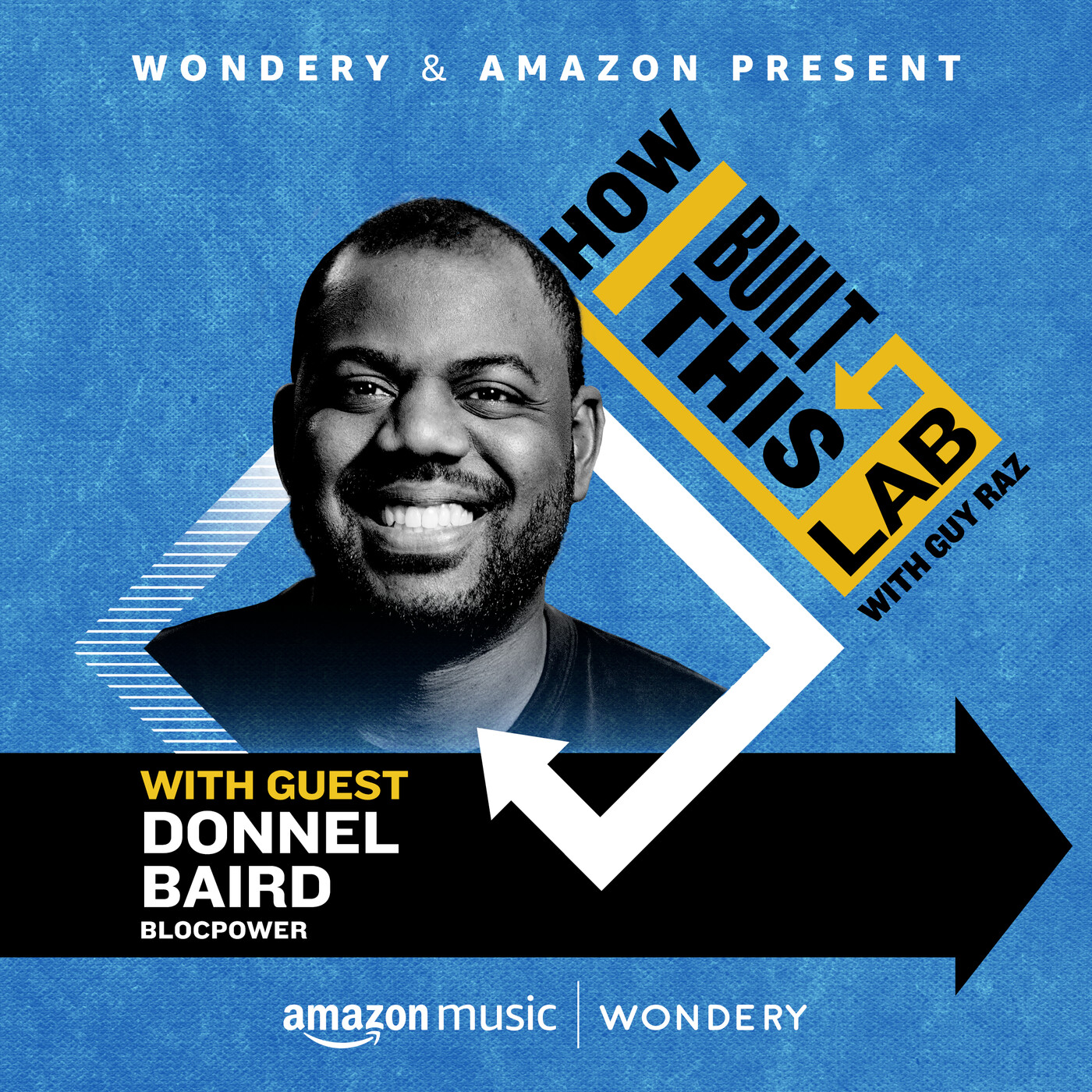
HIBT Lab! BlocPower: Donnel Baird
When Donnel Baird was a child, his parents would regularly use the oven to heat their Brooklyn apartment — a dangerous and energy-inefficient practice that’s unfortunately not unique to New York City. As an adult traveling the country with the Obama for America campaign, Donnel saw countless homes and apartments wasting power and jeopardizing resident safety because of dated infrastructure. He founded BlocPower in 2014 to address this precise problem, focusing on low-income communities so often overlooked by innovative startups. This week on How I Built This Lab, Donnel talks with Guy about BlocPower’s work to modernize buildings nationwide and transition them to clean energy sources. BlocPower has raised more than $100 million from Wall Street and Silicon Valley investors, and has partnered with cities across the country to create greener, safer spaces for their residents.See Privacy Policy at https://art19.com/privacy and California Privacy Notice at https://art19.com/privacy#do-not-sell-my-info.
47:0607/07/2022

Happy Family Organics: Shazi Visram (2020)
While she was a student at business school, Shazi Visram ran into an old friend—a new mother of twins. The friend confided she felt like a bad mom because she had no time to make her kids healthy meals. That gave Shazi her initial idea: why not make organic pureed baby food, and sell it frozen instead of jarred? People told her she was crazy to take on Gerber, but she convinced dozens of friends and family to invest in Happy Baby. Nearly 20 years later, the brand is known as Happy Family Organics and reportedly makes more than $200 million a year.See Privacy Policy at https://art19.com/privacy and California Privacy Notice at https://art19.com/privacy#do-not-sell-my-info.
01:08:5104/07/2022

HIBT Lab! Climeworks: Jan Wurzbacher
According to the 2022 report from the Intergovernmental Panel on Climate Change (IPCC), the world needs to cut carbon emissions drastically to avoid the worst effects of global warming. But that’s not all. In addition to reducing emissions, we also need to remove 6 to 10 billion tons of carbon dioxide from the atmosphere each year by 2050. This week on How I Built This Lab, Guy talks with Jan Wurzbacher, co-founder and CEO of Climeworks. They discuss how Jan and his team built the world’s largest direct air capture facility, which filters carbon dioxide from the air and stores it permanently underground. Plus, Jan’s optimistic vision of how humans can achieve the goal of reversing climate change. See Privacy Policy at https://art19.com/privacy and California Privacy Notice at https://art19.com/privacy#do-not-sell-my-info.
37:3930/06/2022

The Tonight Show & Electric Hot Dog: Jimmy Fallon
Jimmy Fallon may talk like a comedian, but he thinks like a restless entrepreneur. In addition to his day job as host of The Tonight Show, he runs a TV production company, writes best-selling children’s books, and creates products you never knew you needed, like all-day pajamas and “hands high” jerseys that show the name of your favorite team in the armpit. As a kid, Jimmy was obsessed with perfecting his impressions of Richard Pryor and Steve Martin, with the goal of one day starring on Saturday Night Live. After an incredibly successful 6-year run on that show, he tried to make it in film, only to eventually find his way to one of the most coveted jobs in television. Today, he’s constantly generating new ideas, whether for a new TV show, or a Christmas tchotchke called Elvis on the Shelvis.See Privacy Policy at https://art19.com/privacy and California Privacy Notice at https://art19.com/privacy#do-not-sell-my-info.
01:11:5027/06/2022

HIBT Lab! The Sorry Girls: Kelsey MacDermaid and Becky Wright
YouTubers Kelsey MacDermaid and Becky Wright – better known as The Sorry Girls – have always had an affinity for production. When they met as film students back in 2010, little did they know that the DIY videos they were creating for fun would eventually lead to full-fledged careers co-founding and leading their own media company. But building to where they are now, with over 2 million subscribers and counting, didn’t exactly come with a blueprint…This week on How I Built This Lab, Kelsey and Becky talk to Guy about pursuing the uncharted territory of a YouTube career, their philosophies on navigating brand deals, and their take on growing a business in the creator economy without compromising on values. Check out The Sorry Girls on YouTube and try your own hand at DIY: https://www.youtube.com/c/TheSorryGirls/featured See Privacy Policy at https://art19.com/privacy and California Privacy Notice at https://art19.com/privacy#do-not-sell-my-info.
43:1223/06/2022

Affirm: Max Levchin (Part 2 of 2)
After PayPal sold to eBay in 2002, Max Levchin could have relaxed on a beach for the rest of his life. But that’s not the kind of person he is. He isn’t happy unless he’s coming up with new ideas and building companies – so much so that he actually fell into a dark place after leaving PayPal. He didn’t fully find himself until years later, when he rediscovered his passion for the “hard, valuable, fun” problems of fintech. Now, Max runs another billion-dollar company: Affirm, a “buy now, pay later” service that’s transforming how we purchase things on credit. This is the second part of a two-part conversation with Max; to hear the story of PayPal, be sure to listen to part 1! See Privacy Policy at https://art19.com/privacy and California Privacy Notice at https://art19.com/privacy#do-not-sell-my-info.
57:5620/06/2022
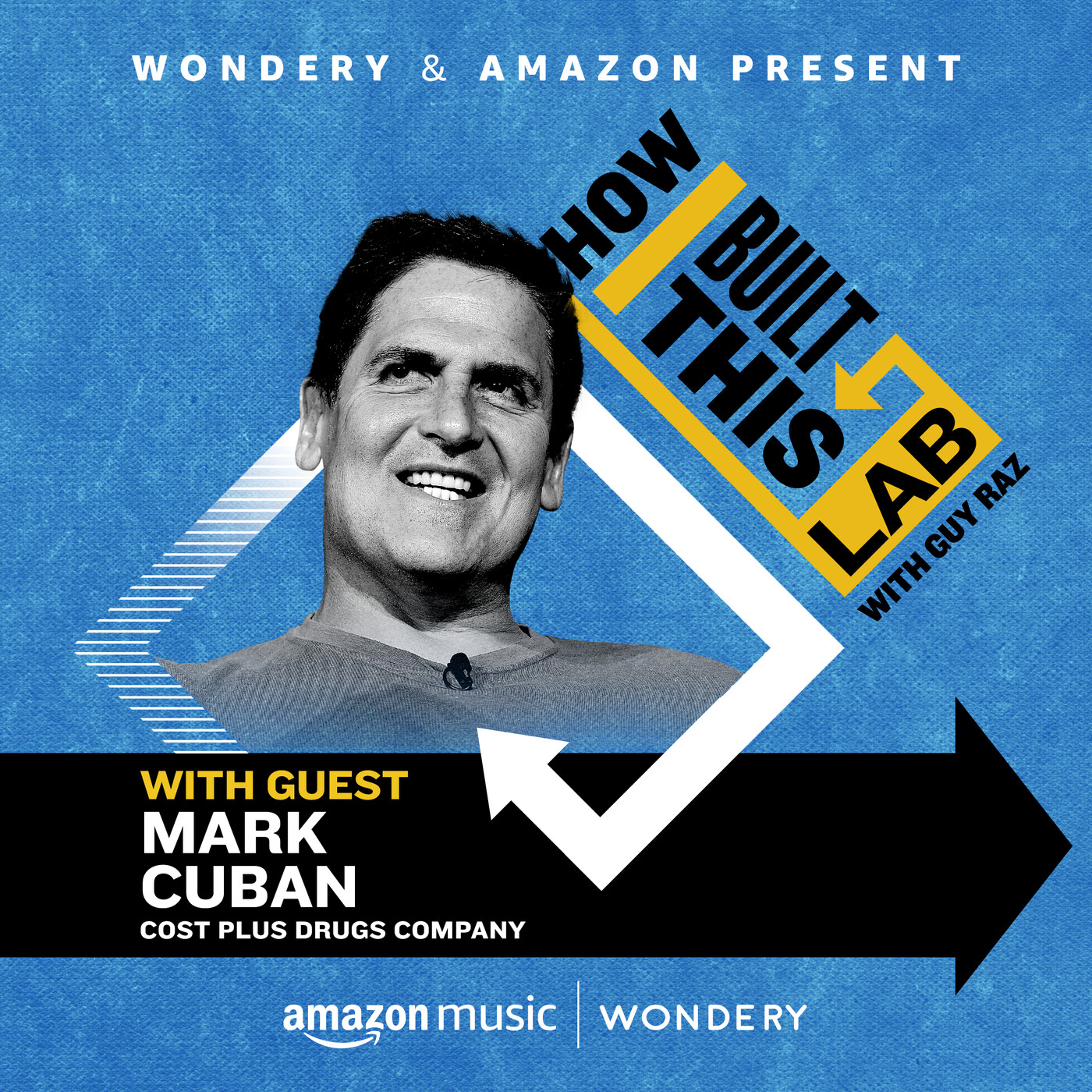
HIBT Lab! Mark Cuban Cost Plus Drug Company: Mark Cuban
Serial entrepreneur Mark Cuban was one of the very first guests on How I Built This, way back in 2016. Mark has been founding and investing in startups for decades, but he’s never put his name on a company until now. This week on How I Built This Lab, Mark joins Guy to talk about what he’s been up to since he was last on the show. They discuss his interest in NFTs and how his latest business, the Mark Cuban Cost Plus Drug Company, is looking to disrupt the pharmaceutical industry. Listen to Mark’s original How I Built This episode: https://wondery.com/shows/how-i-built-this/episode/10386-serial-entrepreneur-mark-cuban/See Privacy Policy at https://art19.com/privacy and California Privacy Notice at https://art19.com/privacy#do-not-sell-my-info.
34:1616/06/2022

PayPal: Max Levchin (Part 1 of 2)
During its formative years in the late 1990's, Paypal attracted an extraordinary group of young entrepreneurs, who then went on to build some of the best known companies in tech. They became known as The PayPal Mafia—and Max Levchin was one of the leaders. A computer genius from Soviet Ukraine, Max joined Peter Thiel, Elon Musk, Reid Hoffman and others as they grew PayPal into a massively successful online payment service. Along the way, they encountered almost every start-up challenge imaginable, including the emotional ouster of Elon Musk as CEO. After PayPal was acquired by eBay in 2002, Max couldn't sit still, so he launched a startup lab that eventually led to another successful fintech company: Affirm. Guy will talk to Max about Affirm next week, in the second episode of this two-part series. See Privacy Policy at https://art19.com/privacy and California Privacy Notice at https://art19.com/privacy#do-not-sell-my-info.
01:28:1013/06/2022

HIBT Lab! Google: Sundar Pichai
Drive. Docs. Chrome. Maps. Gmail. Android. What do these products have in common? Of course, they’re all Google, but what you may not know is that they all came to fruition under the management of the same person: Sundar Pichai. This track record in product development ultimately landed Sundar the CEO role at one of the biggest, most innovative companies in the world. This week on How I Built This Lab, Sundar reflects on the unique journey that led him to Google, and the values that inspire and drive his leadership today. He and Guy also discuss Google’s recent advances in artificial intelligence, and how the company is reimagining the workplace as offices across the globe reopen.See Privacy Policy at https://art19.com/privacy and California Privacy Notice at https://art19.com/privacy#do-not-sell-my-info.
34:5609/06/2022

Pitchfork: Ryan Schreiber
While working at his local record store at age 20, Ryan Schreiber dreamt that his scrappy music review webpage might one day grow into an influential music publication. Working out of his parents’ house, he wrote about indie music because he loved it, and recruited like-minded friends to do the same. In 2000, a rhapsodic review of Radiohead’s “Kid A” got huge attention online, and soon Ryan’s site began to attract tens of thousands of users—building a reputation for pointed reviews that could make or break careers. In 2015, Pitchfork joined The New Yorker and Vogue when it was acquired by Condé Nast, one of the most prestigious magazine publishers in the world.See Privacy Policy at https://art19.com/privacy and California Privacy Notice at https://art19.com/privacy#do-not-sell-my-info.
01:16:5206/06/2022

HIBT Lab! Wildtype: Aryé Elfenbein and Justin Kolbeck
When Aryé Elfenbein and Justin Kolbeck met in 2011, they had no intention of starting a business. Aryé was a cardiologist, and Justin was a diplomat who had lived in countries all over the world. But their chance meeting at a dinner party led to a deep friendship focused on working together to change the world. Through regular Saturday morning brainstorming sessions, they settled on pursuing a scientific approach to growing meat for human consumption.This week on How I Built This Lab, Aryé and Justin discuss the problems with modern seafood production and how their company, Wildtype, hopes to revolutionize the industry by using stem cells to cultivate real, sushi-grade salmon...without harming any actual fish.See Privacy Policy at https://art19.com/privacy and California Privacy Notice at https://art19.com/privacy#do-not-sell-my-info.
42:2202/06/2022

Houzz: Adi Tatarko
When Adi Tartako and her husband started the home design and renovation website Houzz in 2009, they had no expectation that it would grow into a global business. In fact, Adi was a hesitant entrepreneur, preferring to foster Houzz as a lifestyle business and pushing back when experts told her it could grow into something much bigger. But as Houzz morphed into a go-to site for users to get ideas for home improvement and connect with industry professionals, Adi decided to go all-in. She walked away from a promising career in finance to become the CEO of Houzz, helping lead it to a platform that now has 65 million users worldwide. See Privacy Policy at https://art19.com/privacy and California Privacy Notice at https://art19.com/privacy#do-not-sell-my-info.
01:16:5930/05/2022

HIBT Lab! Burn Rate: Andy Dunn
From the outside, it seemed like Andy Dunn was living the dream. His menswear company, Bonobos, was acquired by Walmart for $310 million in 2017 — the same year he married the love of his life, Manuela. Of course, Andy’s entrepreneurial journey wasn’t without its challenges. Under the surface were much darker struggles that he largely kept hidden…This week on How I Built This Lab, Andy returns to the show to talk to Guy about his new book, Burn Rate: Launching a Startup and Losing My Mind. In this radically honest memoir, Andy finally opens up about the struggle with bipolar disorder that nearly cost him everything. Check out Andy’s book here: https://www.amazon.com/Burn-Rate-Launching-Startup-Losing/dp/0593238265 Listen to Andy’s How I Built This interview from 2019: https://www.npr.org/2019/01/18/686640146/bonobos-andy-dunn See Privacy Policy at https://art19.com/privacy and California Privacy Notice at https://art19.com/privacy#do-not-sell-my-info.
36:5226/05/2022

Nature’s Path: Arran and Ratana Stephens
Starting a business with your spouse can either bring you closer together or tear you apart. For Arran and Ratana Stephens, their business has lasted for nearly 40 years, and their marriage has thrived for much longer. As business partners, they seem perfectly matched: he’s the hard-charging visionary, she’s the practical, business-minded one who sometimes has to talk him out of a bad decision. But in 1985, Arran made a very smart move: seeing how organic food was starting to take off, he mixed up his first batch of Manna bread in a bathtub and started selling it, eventually expanding to national distribution. From there, he and Ratana pivoted to breakfast cereal, initially purchasing a factory that couldn’t make a single cornflake. Today, Nature’s Path sells organic cereals, tortilla chips and other snacks in more than 50 countries around the world. See Privacy Policy at https://art19.com/privacy and California Privacy Notice at https://art19.com/privacy#do-not-sell-my-info.
01:17:3623/05/2022

HIBT Lab! Stolen Focus: Johann Hari
Like so many of us, author Johann Hari noticed that the more time he spent looking at screens and switching from device to device, the harder it became for him to concentrate and achieve his goals. After talking to more than 200 doctors, researchers, and neuroscientists around the world, Johann came to a sobering conclusion: the human race is in the middle of an attention crisis. He examines this societal challenge in his new book, Stolen Focus: Why You Can’t Pay Attention and How to Think Deeply Again.This week on How I Built This Lab, Johann and Guy discuss the factors chipping away at our ability to focus, and what we can do to reclaim our attention. They also talk about flow states – how we get into them, and why everyone in the business world should be working to achieve them. Check out Johann’s book here: https://amzn.to/3L3wsMCSee Privacy Policy at https://art19.com/privacy and California Privacy Notice at https://art19.com/privacy#do-not-sell-my-info.
29:4419/05/2022

HIBT Lab! UNLESS Collective: Eric Liedtke
Eric Liedtke spent 26 years at Adidas, working his way up from an entry level position to Executive Board Member and Global Brand President. During that time, he helped revitalize the Adidas brand through high profile partnerships with celebrities like Kanye West and Beyonce. But he was also known for his focus on sustainability. It was Eric who pushed Adidas to commit to using only 100% recycled polyester in its clothing by 2024. This week on How I Built This Lab, Eric joins Guy to talk about the environmental impact of the fashion industry. Eric shares why he left Adidas and started his own apparel brand, UNLESS Collective, which makes 100% plant-based, biodegradable clothing.See Privacy Policy at https://art19.com/privacy and California Privacy Notice at https://art19.com/privacy#do-not-sell-my-info.
28:1016/05/2022

HIBT Lab! ClassPass: Payal Kadakia
When Payal Kadakia first appeared on How I Built This in June of 2020, the future of ClassPass, a subscription service for in-person exercise classes, seemed very uncertain. The pandemic had shuttered gyms and fitness studios across the world, and ClassPass was relying on virtual events and wellness offerings in order to stay afloat. This week on How I Built This Lab, Payal returns to talk with Guy about leading ClassPass through the worst of the pandemic and eventually selling the company to Mindbody in October 2021. Plus, Payal discusses her unique method of goal setting and her new book, LifePass: Drop Your Limits, Rise to Your Potential.Listen to Payal's original How I Built This episode: https://wondery.com/shows/how-i-built-this/episode/10386-classpass-payal-kadakia/See Privacy Policy at https://art19.com/privacy and California Privacy Notice at https://art19.com/privacy#do-not-sell-my-info.
31:2912/05/2022

PODS & Red Rover: Pete Warhurst
Pete Warhurst probably would not have picked “entrepreneur” as a career when he was growing up. He loved his job as a firefighter and paramedic and might have done it for life, had a colleague not recruited him to help launch a company to build 911 call systems. After that business sold, Pete began to think about new problems to solve – like a better way to move and store our stuff. In 1998, he began disrupting the self-storage industry with PODS, a system that brings storage containers to the consumer, then transfers them to a warehouse. The business quickly spread from Clearwater, Florida to franchises across the country, eventually selling for about $450 million. But Pete still thought there was a better way to schlep your stuff to a storage facility, so he launched yet another business—Red Rover—that now competes with PODS. See Privacy Policy at https://art19.com/privacy and California Privacy Notice at https://art19.com/privacy#do-not-sell-my-info.
01:20:0009/05/2022
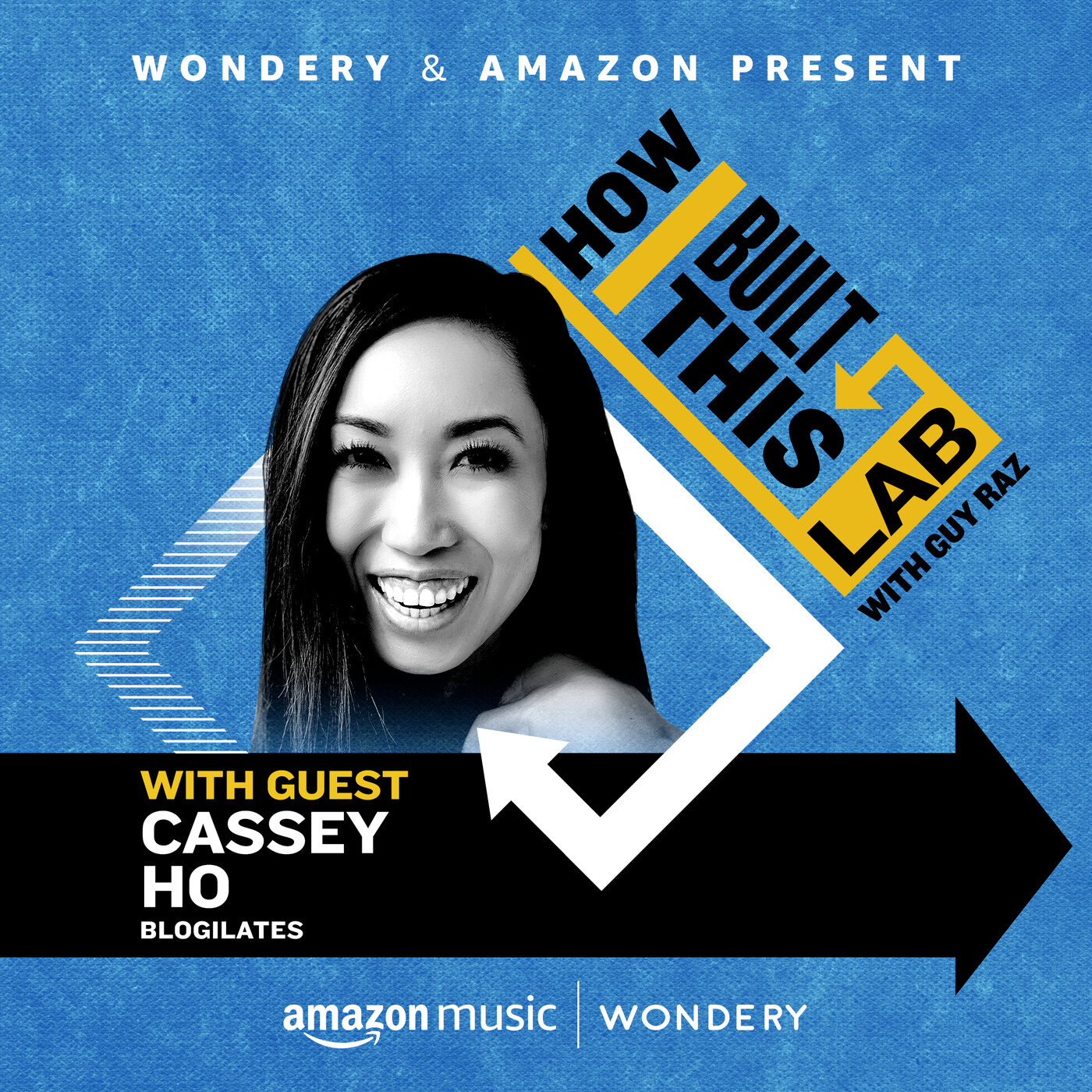
HIBT Lab! Blogilates: Cassey Ho
Cassey Ho is the face of Blogilates, best known for its free online workout videos which have more than a billion views on YouTube alone. As impressive as that is, digital content is just one part of Cassey’s multi-million dollar entrepreneurial portfolio, which has grown to include her POPFLEX apparel brand, additional product lines at Target, a Pilates certification program and more. This week on How I Built This Lab, hear about the risks Cassey took to defy cultural expectations in pursuit of a more fulfilling – and in some ways, forbidden – career, along with her perspective on what it takes to grow a business in the creator economy.See Privacy Policy at https://art19.com/privacy and California Privacy Notice at https://art19.com/privacy#do-not-sell-my-info.
34:0205/05/2022

Strava: Mark Gainey and Michael Horvath
Mark Gainey and Michael Horvath were two friends from college with a good idea and bad timing: in 1995, they set out to create a digital community where athletes could chart their progress and actively compete with one another. But it was just too early: software engineers said it couldn't be built, and investors didn't want to take the risk. So the two founders wound up launching an entirely unrelated business, one that was so perfectly timed that it led to a successful IPO a few years later. Still, Michael and Mark couldn't shake their original idea, and in 2008, they launched a website where cyclists could map and monitor their rides, and compete with riders across the country. The prototype was clunky—Mark jokes that "we wanted to make it as hard to use as possible"—but the timing was perfect, and Strava was born. Today, it’s a mobile app used by 100 million athletes in nearly 200 countries around the world. See Privacy Policy at https://art19.com/privacy and California Privacy Notice at https://art19.com/privacy#do-not-sell-my-info.
01:19:5202/05/2022

HIBT Lab! Armbrust American: Lloyd Armbrust
Lloyd Armbrust spent the bulk of his career in newspaper operations and advertising...until early 2020 when he started hearing about the spread of a dangerous new virus and a critical shortage of surgical masks. Most masks at the time were made in Asia, and when supply chains started to break down that March, many Americans had a really hard time finding them. This week on How I Built This Lab, Lloyd walks us through the whirlwind journey of launching a mask manufacturing business at the height of the pandemic, along with some of the factors that hold us back from producing more goods within the United States.See Privacy Policy at https://art19.com/privacy and California Privacy Notice at https://art19.com/privacy#do-not-sell-my-info.
30:5528/04/2022
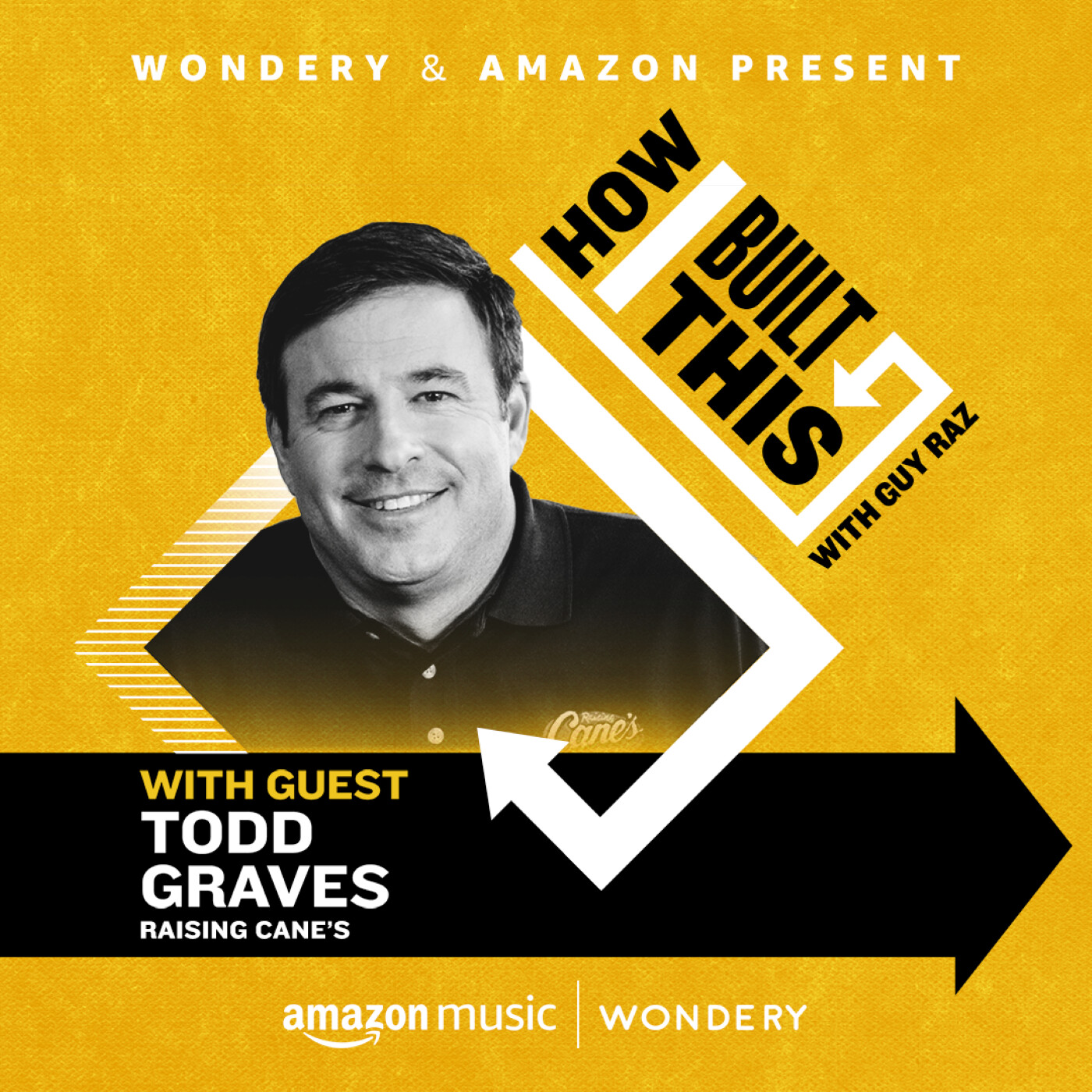
Raising Cane's: Todd Graves
By his early 20s, Todd Graves knew exactly what he wanted to do—open a restaurant near Louisiana State University that would make four things better than anyone else: chicken fingers, crinkle-cut fries, Texas toast, and coleslaw. After he and his partner Craig Silvey got rejected from every bank in Baton Rouge, Todd set out to fund his dream by working two treacherous jobs; first at an oil refinery and then on an Alaskan fishing boat. With roughly $150,000, he remodeled an old bike shop and opened his first restaurant in 1996. As word spread, Todd began building more restaurants, fueling the expansion on a rickety system of loans, and dreaming of making Cane’s as ubiquitous as McDonald's. Over the years, he has retained ownership of the business and watched it grow to over 600 stores, with 3 billion dollars in sales projected this year.See Privacy Policy at https://art19.com/privacy and California Privacy Notice at https://art19.com/privacy#do-not-sell-my-info.
01:22:4625/04/2022

HIBT Lab! WeWork: Miguel McKelvey
When Miguel McKelvey was first featured on How I Built This in 2017, his company was growing at an astounding rate. WeWork was considered the unicorn of unicorns. But after reaching a $47 billion valuation in 2019, WeWork’s tide began to turn. Investors raised concerns about the company’s rapid expansion and unsustainable spending. Miguel’s co-founder Adam Neuman faced accusations of mismanagement and was forced to resign. The company withdrew a long-anticipated IPO filing, and not long after, Miguel left the company he had worked so hard to build.Since then, the cautionary tale of WeWork has become a bit of a cultural obsession, retold on podcasts, a Hulu documentary, and even an Apple TV series this year. This week on How I Built This Lab, Miguel McKelvey returns to reflect on his experience at WeWork, the lessons he’s learned, and what he’s working on now. Listen to Miguel’s original How I Built This episode: https://wondery.com/shows/how-i-built-this/episode/10386-wework-miguel-mckelvey/ Listen to the WeCrashed podcast from Wondery: https://wondery.com/shows/we-crashed/See Privacy Policy at https://art19.com/privacy and California Privacy Notice at https://art19.com/privacy#do-not-sell-my-info.
29:0521/04/2022
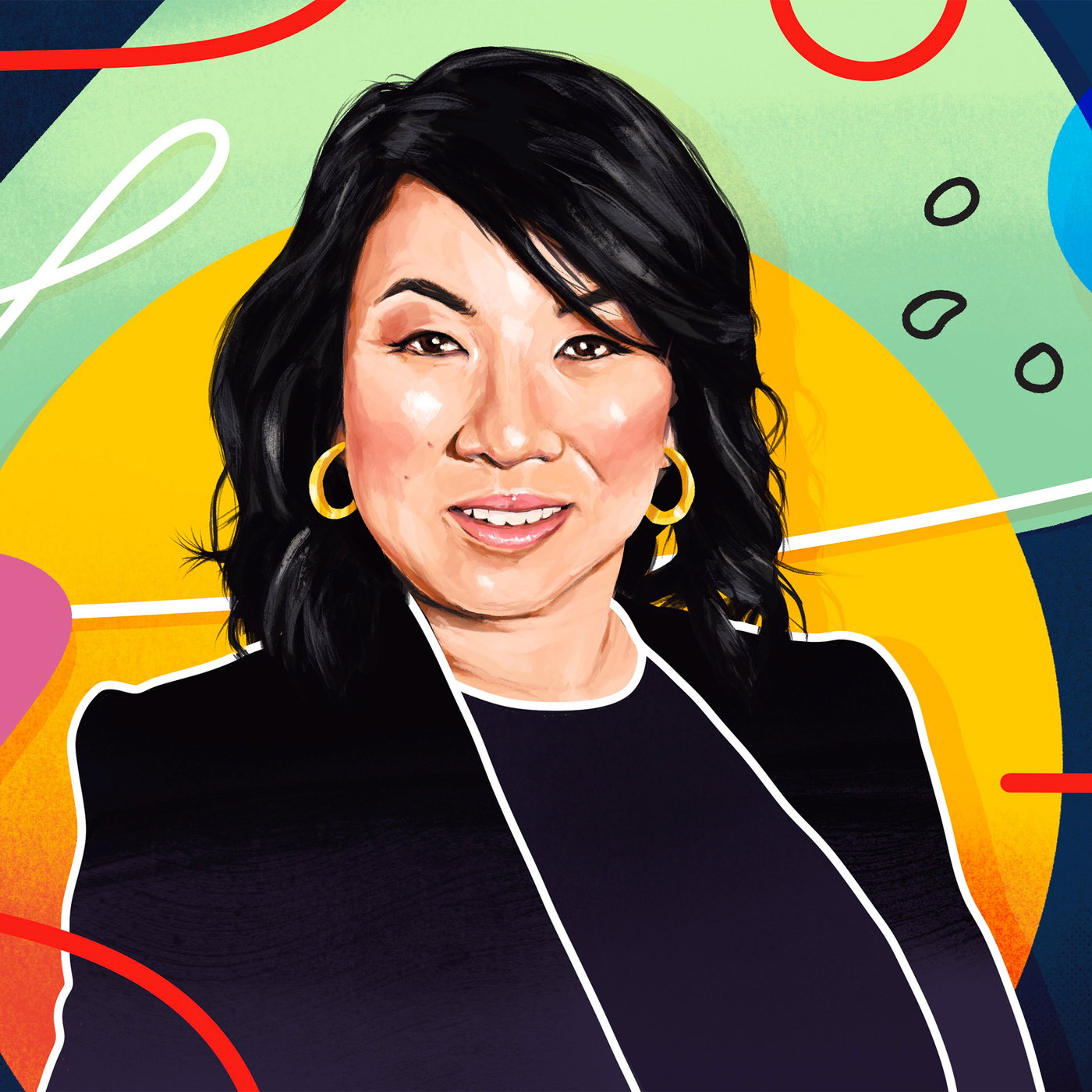
Zola: Shan-Lyn Ma
In a way, Shan-Lyn Ma started attending business school when she was 11 years old and hasn't stopped since. She was hooked on entrepreneurship after winning her first business competition in grade school; and a few years later, she began accumulating lessons from the successes and failures she observed while working at Yahoo and other young companies. In 2013, she and a former colleague applied many of those lessons to their own startup: an online registry designed to make wedding planning easier and more personal. Still, Shan had a lot more to learn—starting with how to convince dubious investors that the world needed another wedding registry. Today, despite the gut-punch of COVID, Zola has grown into a robust wedding-planning platform, valued at $600 million in 2018.See Privacy Policy at https://art19.com/privacy and California Privacy Notice at https://art19.com/privacy#do-not-sell-my-info.
01:10:4418/04/2022

HIBT Lab! Colin and Samir: Colin Rosenblum and Samir Chaudry
Introducing: How I Built This Lab, a sandbox where we explore all kinds of ideas around entrepreneurship. For our very first episode of How I Built This Lab, Guy sits down with Colin Rosenblum and Samir Chaudry, or better known as YouTubers Colin and Samir—a pair of creators who create content for other creators. (We know, pretty meta.) The creator economy barely existed a decade ago, but has quickly become a multi-billion dollar industry with a massive global reach. Colin and Samir discuss their 10-year business journey, and share insights on how to break into this rapidly-growing industry.See Privacy Policy at https://art19.com/privacy and California Privacy Notice at https://art19.com/privacy#do-not-sell-my-info.
37:2314/04/2022
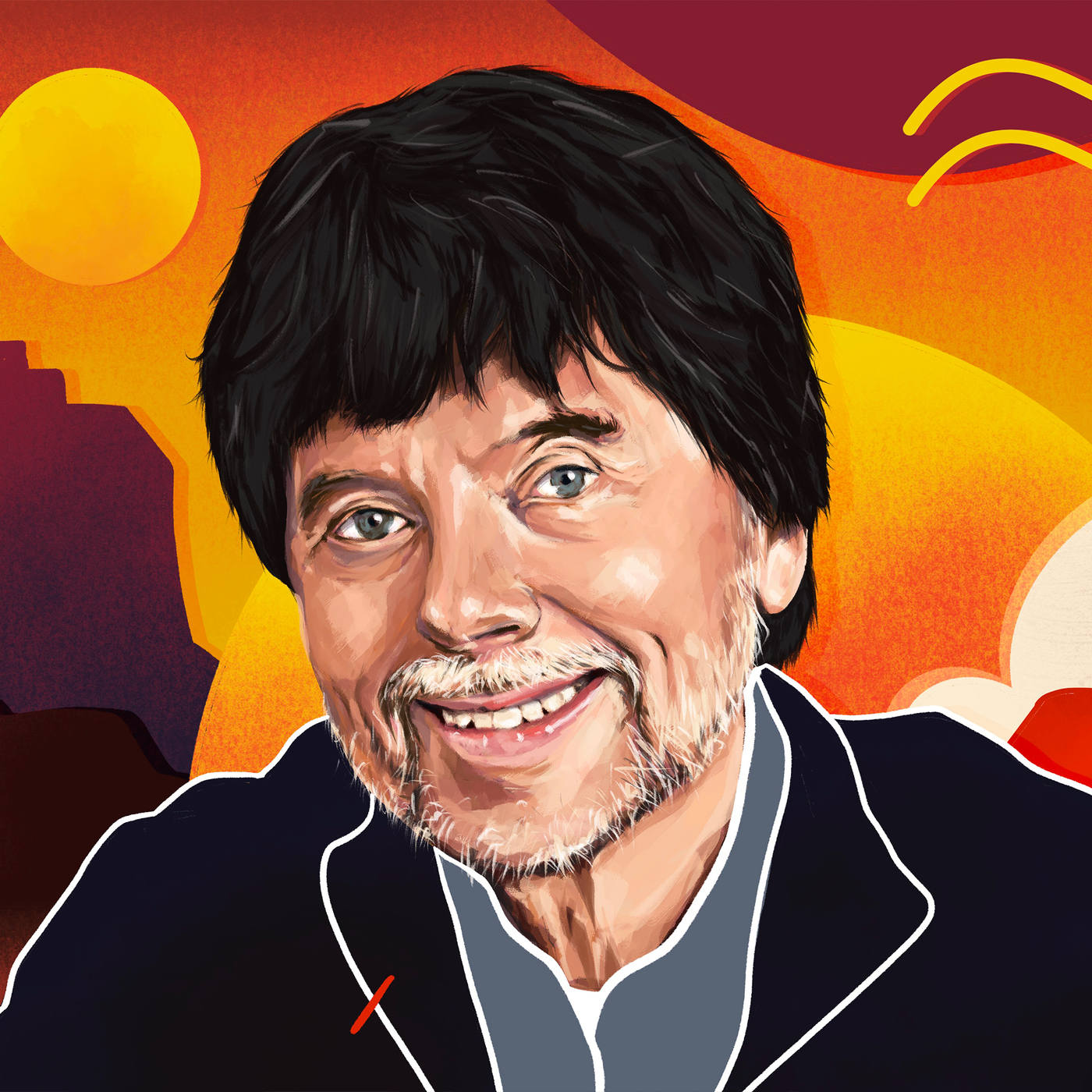
Florentine Films: Ken Burns
As a boy, Ken Burns was captivated by the power of film and dreamed of being the next Alfred Hitchcock or John Ford. But in college, he discovered that stories about American history could be just as dramatic as any he could make up. Eventually, he set out to make a new kind of documentary, layered with actors’ voices and sound effects; and animated by a gentle panning motion that became known as the Ken Burns Effect. But he also had to run a business: knocking on doors to raise money, managing a small team of producers, and fiercely protecting his creative vision and IP. Today, 40+ years after it was founded, Ken’s company Florentine Films has built one of the most valuable documentary archives in the world, including The Civil War, Jazz, Baseball, The Statue of Liberty, and most recently, Benjamin Franklin.See Privacy Policy at https://art19.com/privacy and California Privacy Notice at https://art19.com/privacy#do-not-sell-my-info.
01:17:4111/04/2022

Bonobos: Andy Dunn (2019)
When Andy Dunn was in business school, his housemate Brian Spaly created a new type of men's pants: stylish, tailored trousers that fit well in both the hips and thighs. Together, they started the men's clothing company Bonobos, which became an instant hit due to the pants' signature flair and innovative e-commerce experience. But within a few years, Andy hit challenging roadblocks, including a struggle with depression and a falling-out with his co-founder and friend. Despite many moments of crisis, Andy steered Bonobos to massive success, and in 2017, it was acquired by Walmart for a reported $310 million.See Privacy Policy at https://art19.com/privacy and California Privacy Notice at https://art19.com/privacy#do-not-sell-my-info.
01:07:2904/04/2022
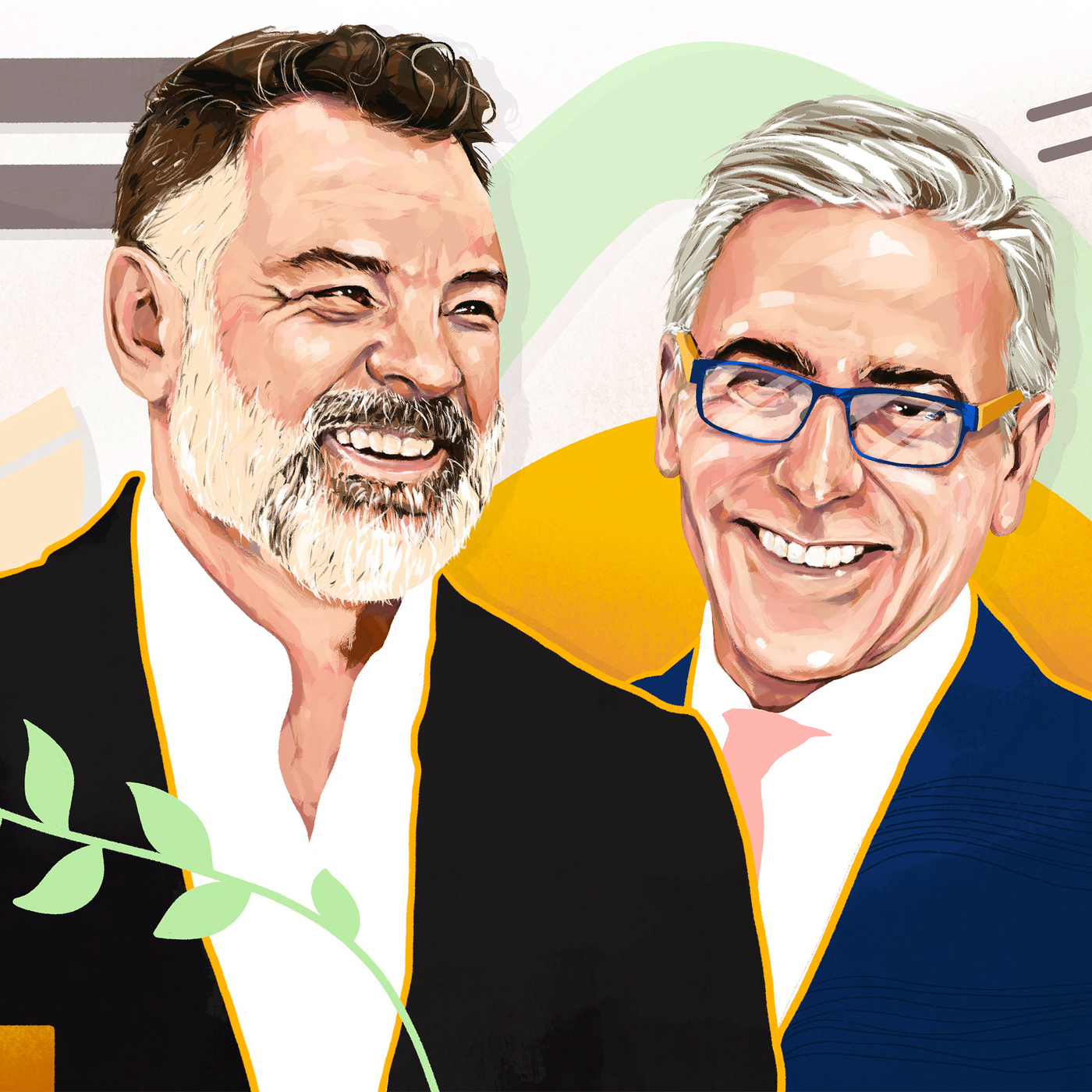
Mitchell Gold + Bob Williams Home Furnishings: Mitchell Gold and Bob Williams
After working in the furniture and home goods industry for over a decade, Mitchell Gold took a risky bet and decided to start his own furniture company. In 1989, he went into business with his romantic partner, Bob Williams, who had been working in advertising as a graphic designer. They contracted with a furniture factory near their home in Taylorsville, North Carolina, and launched a line of boldly-patterned upholstered dining chairs and eclectic dining tables, leveraging Bob’s design skills and Mitchell’s industry experience. Roughly thirty years later, Mitchell Gold + Bob Williams is a multi-million dollar brand with hundreds of employees, which sells a full range of home furnishings at retail locations nationwide.See Privacy Policy at https://art19.com/privacy and California Privacy Notice at https://art19.com/privacy#do-not-sell-my-info.
01:06:3328/03/2022
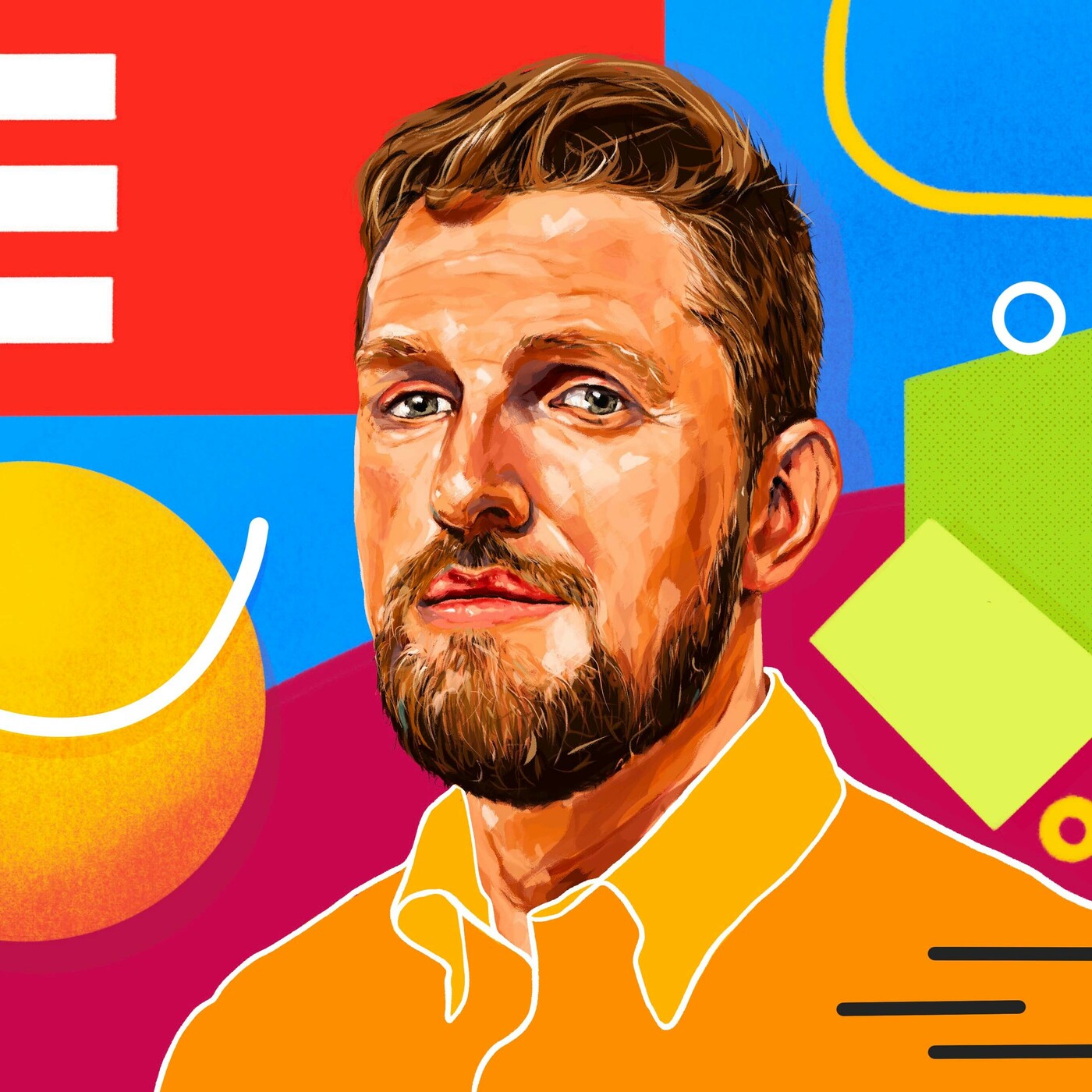
WordPress & Automattic: Matt Mullenweg
Matt Mullenweg turned his early passion for blogging into a flourishing business and an unshakeable idea: that users should be able to share and tweak the code that powers their websites, and that most of those tools should be free to use. As far back as college, Matt was collaborating with far-flung fellow-coders to make blogging less clunky and more elegant and intuitive. Around 2005, he pitched the idea for WordPress.com to his bosses at CNET, but they turned him down, so he launched the idea on his own, eventually tucking the service into a nascent umbrella company called Automattic. Today—after many twists and turns—the company has nearly 2000 employees and a valuation of $7 billion; and WordPress powers more than 40% of the websites on the internet. See Privacy Policy at https://art19.com/privacy and California Privacy Notice at https://art19.com/privacy#do-not-sell-my-info.
01:17:5321/03/2022
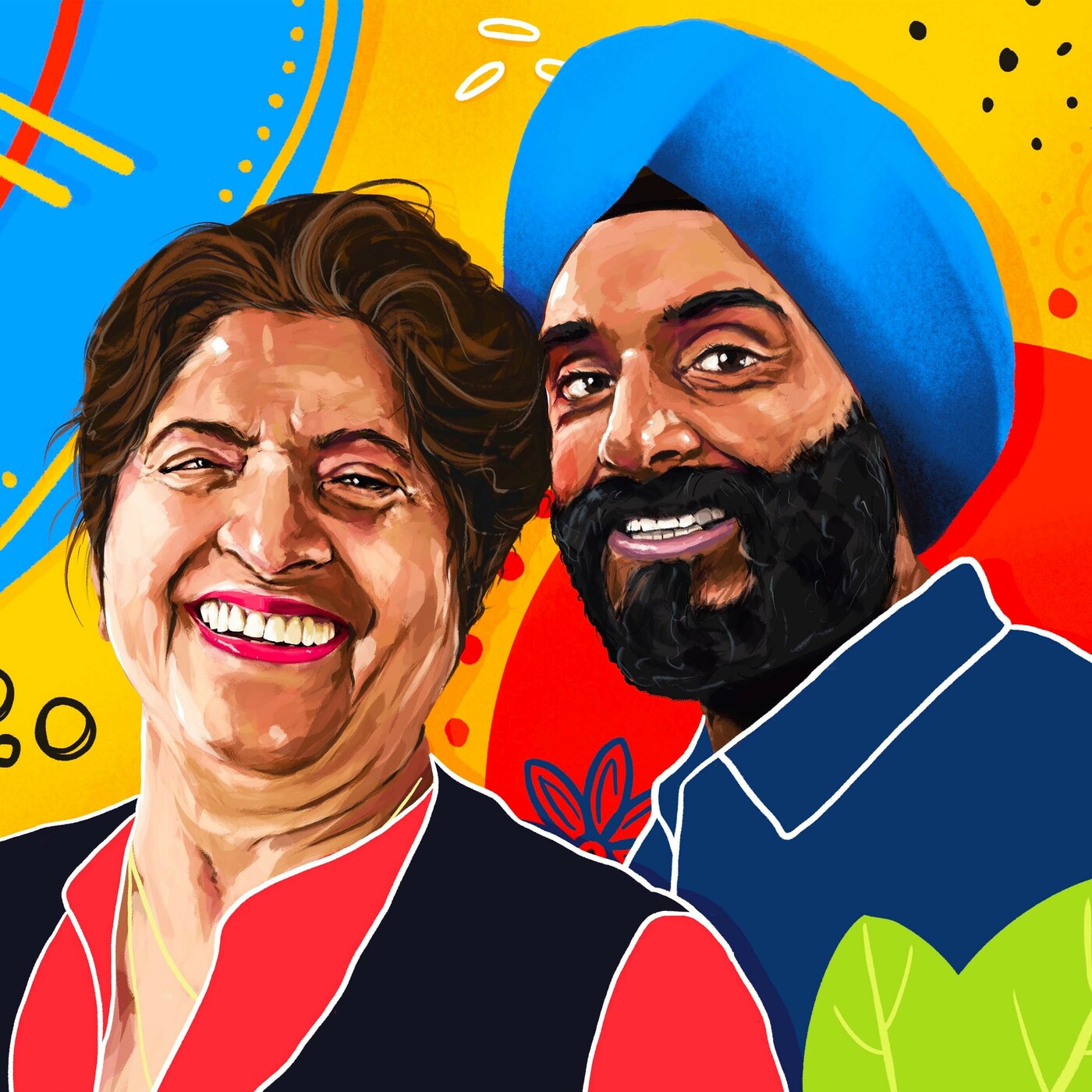
Sukhi’s Gourmet Indian Food: Sukhi Singh and Dalbir Singh
With no strategic plan and very little money, Sukhi Singh figured out a way to sell Indian food at scale across the U.S.—but it took her almost 20 years to do it. In the early 1990's, she shuttered her faltering café in Oakland, California and enlisted her husband and three children to help her sell bottled curry paste at local stores—and Indian meals at farmers markets. But the real breakthrough came when Sukhi expanded into refrigerated/frozen meals, and landed her chicken tikka masala and samosas in Costco. After growing the family business without a cent of outside investment, Sukhi's Gourmet Indian Food is now one of the biggest Indian food brands in the U.S, with over fifty products available in around 7,000 stores.See Privacy Policy at https://art19.com/privacy and California Privacy Notice at https://art19.com/privacy#do-not-sell-my-info.
01:01:3914/03/2022
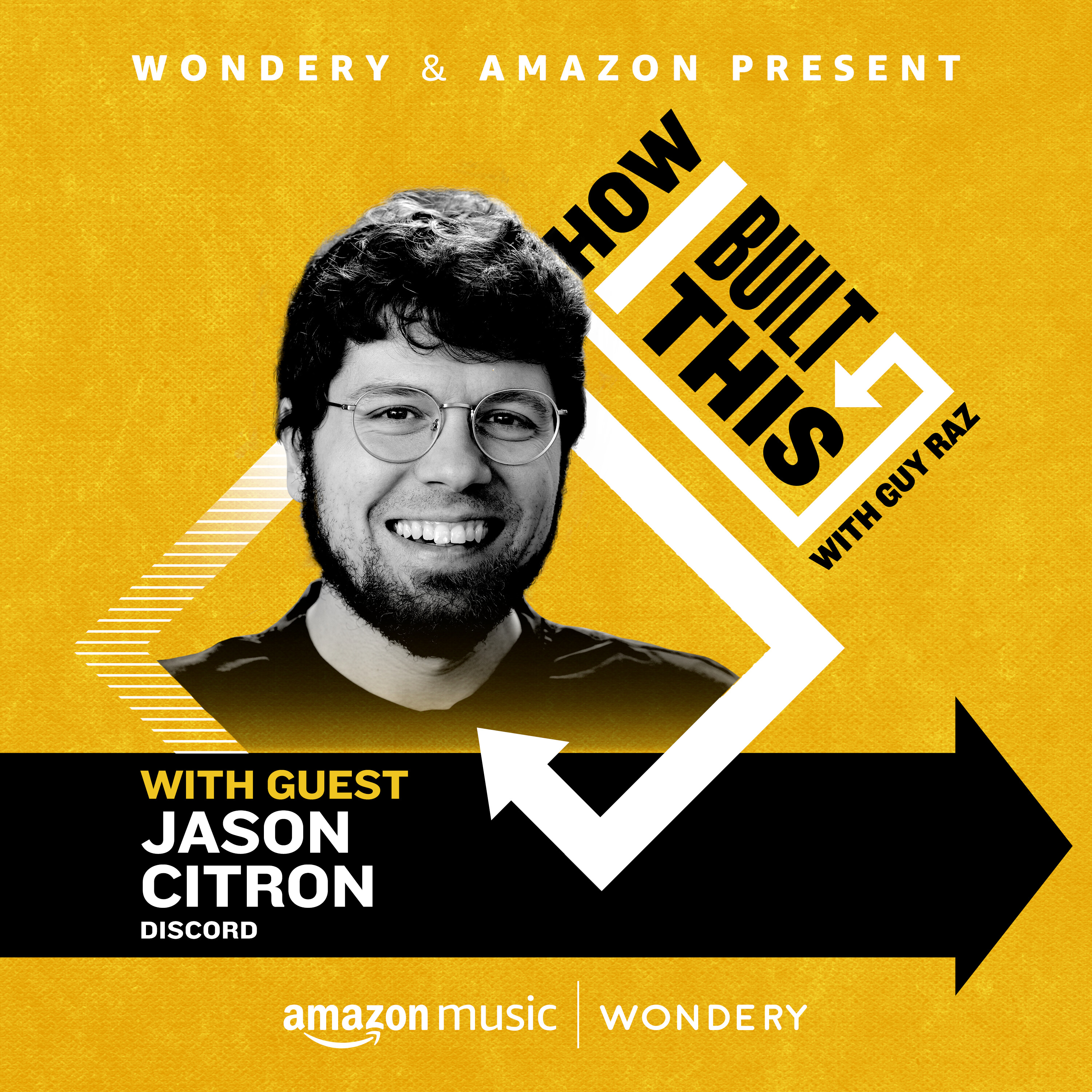
Discord: Jason Citron
During his early career, Jason Citron stepped away from two stalled businesses and pivoted—twice—to something far more successful. The second time he did it, he created one of the most popular social media platforms in the world. It started at age 13 when Jason had a “holy crap” moment, discovering he could make his own video games. His first video game company morphed into a social platform for gamers, and after he sold it, he couldn't resist launching another. When that business failed to get traction, he again re-imagined it as a digital space for gamers to gather, and in 2015, Discord was born. Today, the platform has 150 million monthly users, and is a gathering place not just for gamers, but for anyone who wants to connect with friends. See Privacy Policy at https://art19.com/privacy and California Privacy Notice at https://art19.com/privacy#do-not-sell-my-info.
01:25:0007/03/2022
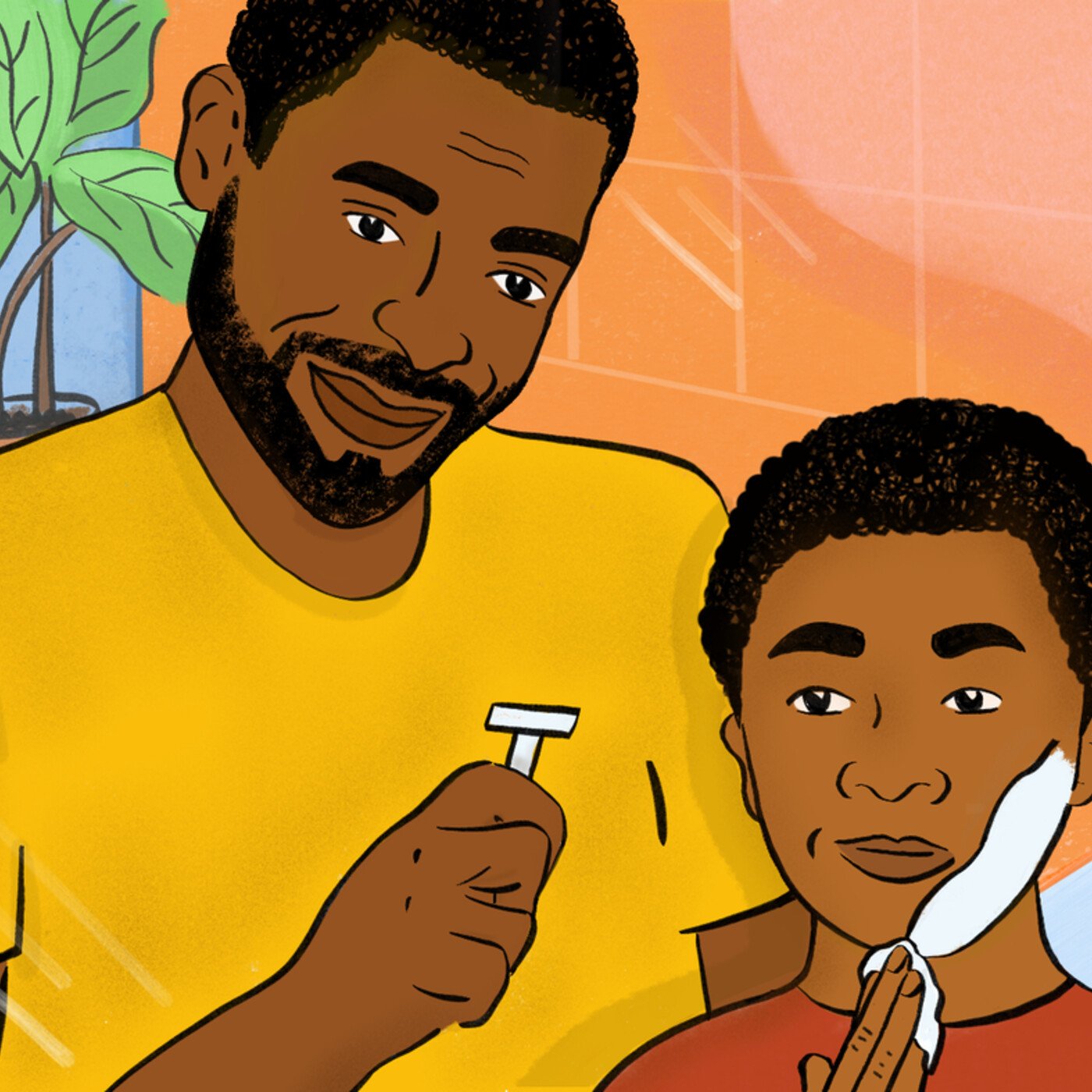
Live Episode! Walker & Company: Tristan Walker (2019)
The very first time Tristan Walker shaved, he woke up the next morning with razor bumps all over his face. "I was like, what is this?" he remembers saying. "I am never shaving again—ever." He soon discovered that like him, many men of color were frustrated by the lack of shaving products for coarse or curly hair. Fifteen years after that first disastrous shave, and after countless meetings with doubtful investors, Tristan launched Bevel, a subscription shaving system built around a single-blade razor. Eventually his brand Walker & Company grew to include 36 hair and beauty products, used by millions of men and women across the U.S. In 2018, Walker & Company was sold to Proctor & Gamble, and Tristan became P&G's first black CEO. This show was recorded live at the Lincoln Theatre in Washington, D.C in September 2019.
See Privacy Policy at https://art19.com/privacy and California Privacy Notice at https://art19.com/privacy#do-not-sell-my-info.
01:02:5928/02/2022

Live Episode! Angie's BOOMCHICKAPOP: Angie & Dan Bastian (2019)
Angie and Dan Bastian weren't trying to disrupt an industry or build a massive company, they just wanted to put aside some money for their kids' college fund. In 2001, Dan stumbled across an internet ad touting kettle corn as a lucrative side-business, so he and Angie decided to take the plunge, investing $10,000 in equipment. At first, they popped kettle corn in front of local supermarkets in the Twin Cities and at Minnesota Vikings games. Eventually, they moved indoors to Trader Joe's, Target, and Costco—and got a crash course in how to run a business along the way. Angie's Kettle Corn eventually took on a bold new name: BOOMCHICKAPOP. And in 2017, the company was acquired for a reported $250 million. This show was recorded live at Ordway Concert Hall in St. Paul, Minnesota in July 2019.See Privacy Policy at https://art19.com/privacy and California Privacy Notice at https://art19.com/privacy#do-not-sell-my-info.
01:03:3821/02/2022

Telfar: Telfar Clemens and Babak Radboy
As he started to gain a name as a New York fashion designer in the 2010s, Telfar Clemens often joked that he was "constantly emerging." At least, that's how the establishment fashion press saw him: a child of Liberian immigrants, building a small but devoted following with his deconstructed T-shirts and sandals made from hollowed-out Converse. But after Telfar partnered with Babak Radboy as his creative director in 2013, the brand began to reach a wider audience. There were splashy partnerships with K-Mart and White Castle; and in 2018, the wide release of the Telfar Bag, a vegan-leather shopping bag that became the "it"-accessory for everyone from A-list celebrities to the neighbors next door. Today, Telfar and Babak say they've succeeded by designing exactly what they want—and sidestepping a fashion system that was not always welcoming.
See Privacy Policy at https://art19.com/privacy and California Privacy Notice at https://art19.com/privacy#do-not-sell-my-info.
01:17:2414/02/2022
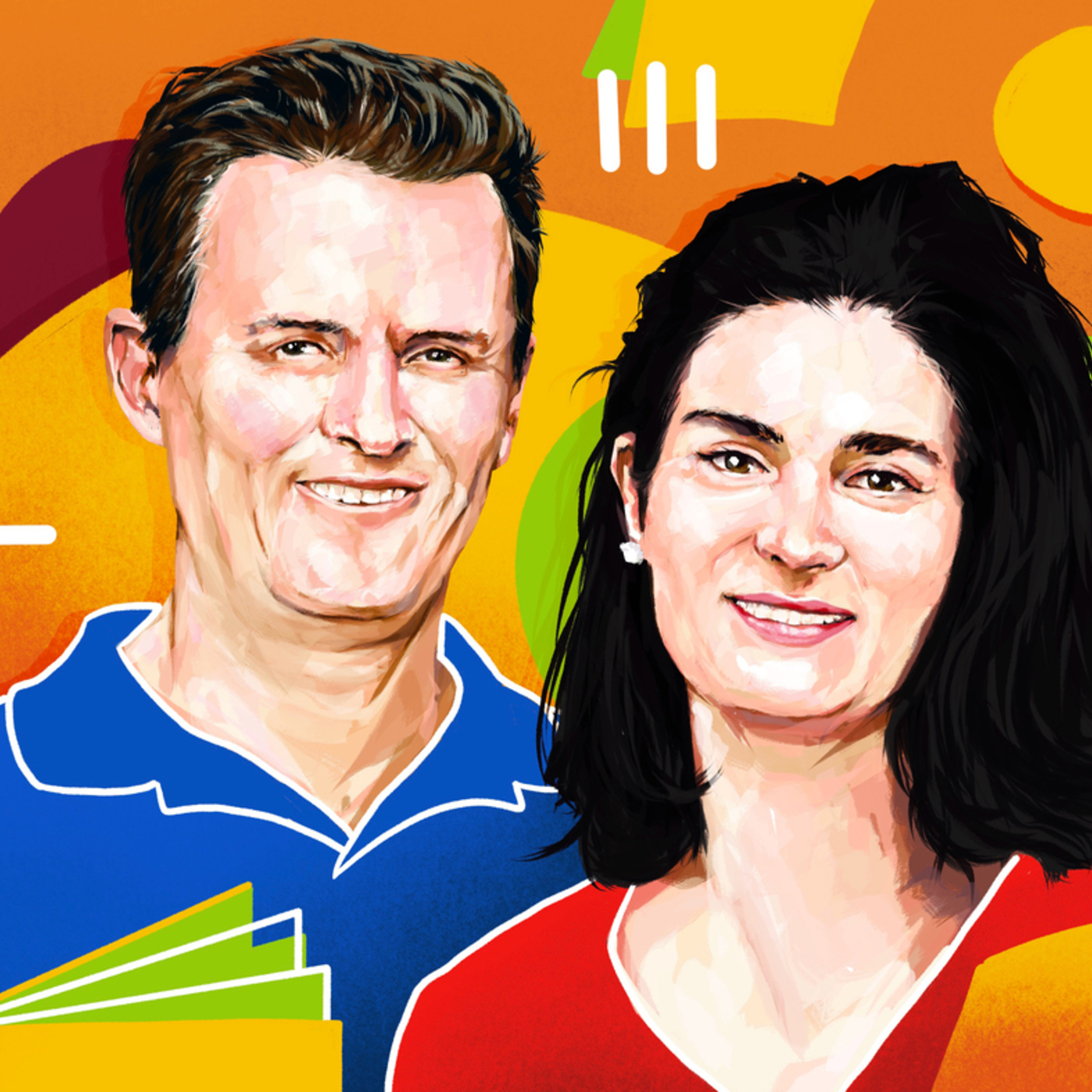
Goodreads: Otis and Elizabeth Chandler
As a young programmer in the mid-2000s, Otis Chandler watched as dozens of niche web sites began to take off. When he decided to launch his own site just for book lovers, a respected colleague told him there was "probably not a very big market there." Otis figured he might prove him wrong, and in 2007, launched Goodreads, a book catalog and review site that he coded from his LA apartment. His soon-to-be-wife Elizabeth joined the project, and they slowly built a following—without an office, a business model, or a single employee. In 2013, Goodreads sold to Amazon for an undisclosed sum; and today, it's the world's largest site for readers, with 125 million users.
See Privacy Policy at https://art19.com/privacy and California Privacy Notice at https://art19.com/privacy#do-not-sell-my-info.
01:09:3807/02/2022
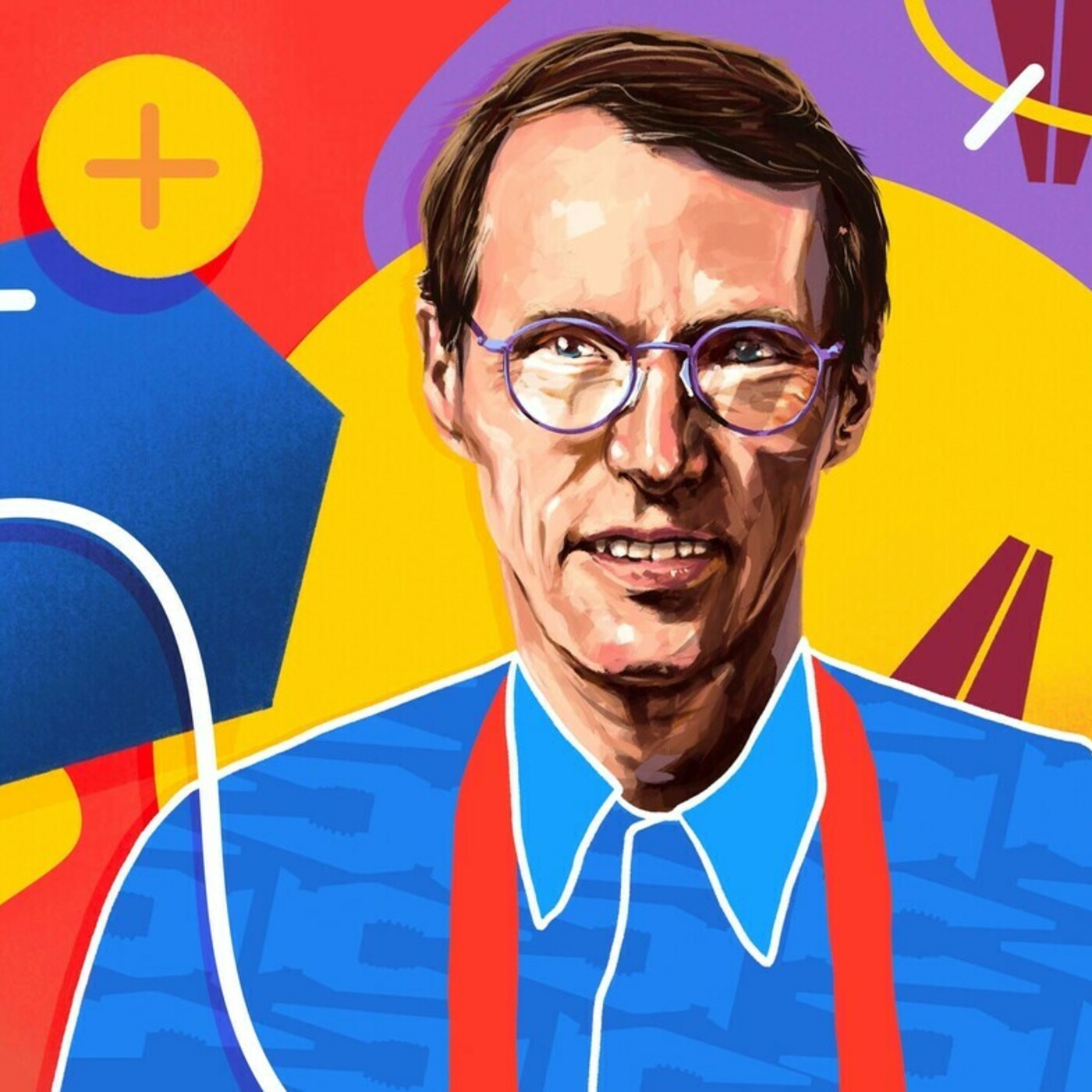
Leatherman Tool Group: Tim Leatherman
Most entrepreneurs expect it will take at least a few years for their businesses to gain traction. But Tim Leatherman waited 7 years to make a single, $175 sale. In the late 1970s, he had set up shop in his brother-in-law's garage, scavenged some metal from old appliances, and built a tool that he'd dreamed up a few years before: a foldable pair of pliers with several other tools tucked into the handles. Tim worked for years trying to market his design to knife and tool companies, but none of them were interested. Was it a tool? A gadget? A knife? Eventually he was able to convince mail-order catalogs to sell the tool; and within the space of a decade, he went from selling a single knife to a million every year. Today Tim's company is worth over a $100 million and his last name has become a household brand: the Leatherman.
See Privacy Policy at https://art19.com/privacy and California Privacy Notice at https://art19.com/privacy#do-not-sell-my-info.
01:04:2431/01/2022

Dang Foods: Vincent and Andrew Kitirattragarn
Vincent Kitirattragarn grew up in a Thai-Chinese-American household, which meant eating congee and lemongrass chicken, while also ordering chicken McNuggets with his younger brothers. He dreamed of opening his own Thai restaurant, but an exhausting stint working at one convinced him that his entrepreneurial path would never be in the restaurant industry. Instead Vincent's Asian-inspired snack food brand, Dang Foods, was born in 2011 when a delicious home-cooking experiment led him to start importing coconut chips from Thailand. Vincent's brother Andrew joined a few years later to help grow the brand through a series of snack product successes—and some tasty but colossal flops. Today, the company sells their brightly-packaged coconut chips, rice crackers, and energy bars in over 10,000 stores across the country.
See Privacy Policy at https://art19.com/privacy and California Privacy Notice at https://art19.com/privacy#do-not-sell-my-info.
01:07:3624/01/2022
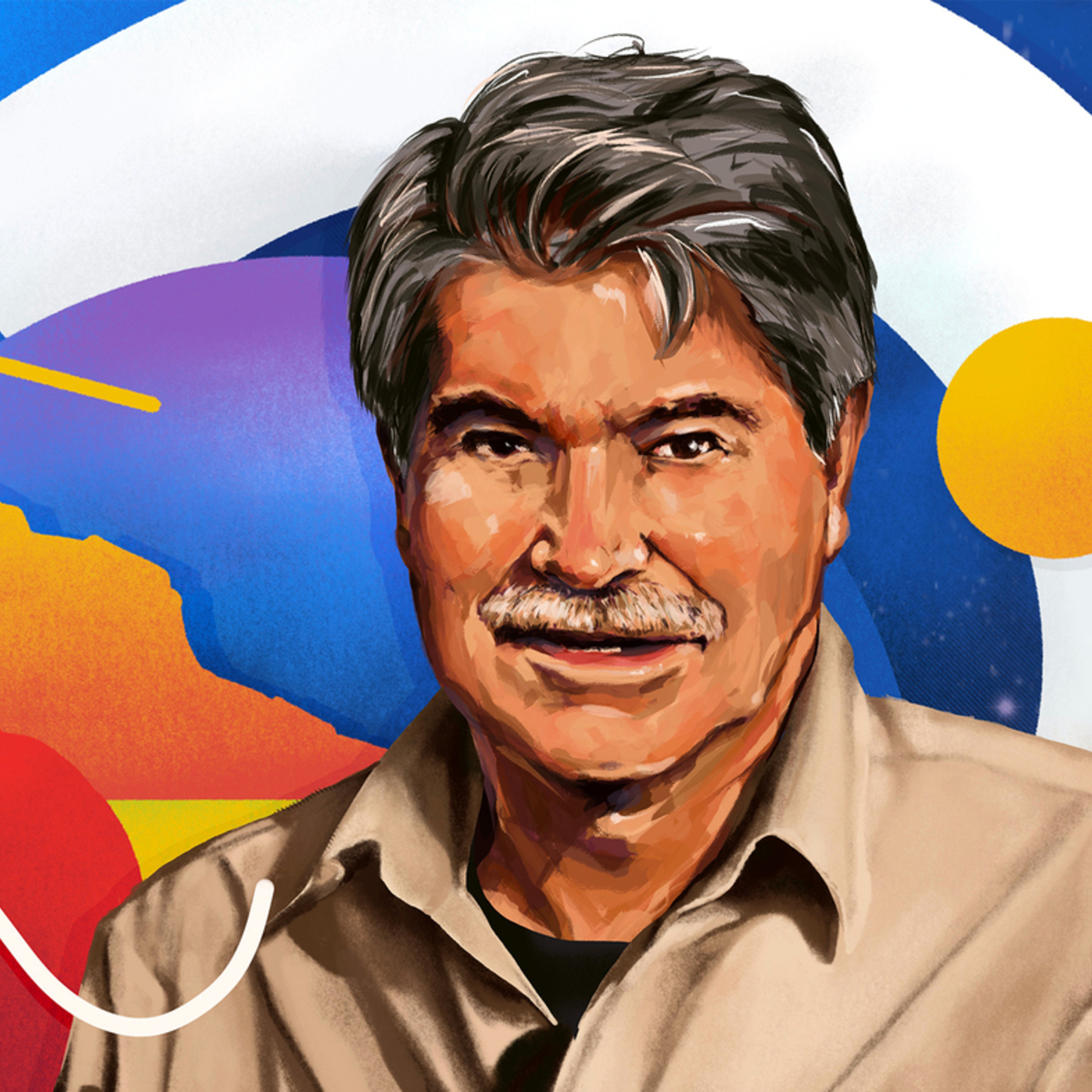
Discovery Channel and Curiosity Stream: John Hendricks
In the 1980s—the early days of cable television—John Hendricks got stuck on an idea he couldn't shake: to create a channel that would teach people cool things in an entertaining way. In college he had seen hours of documentaries on history, science, and outer space; and he figured if he was interested in them, others would be too. So around the age of 30, he left a comfortable consulting business to begin a delicate juggling act: leasing a satellite, licensing content, and wooing cable distributors, all the while pounding the pavement to finance it all. Today, Discovery reaches more than 400 million homes around the world, and John is still in the content business, having launched Curiosity Stream in 2015.
See Privacy Policy at https://art19.com/privacy and California Privacy Notice at https://art19.com/privacy#do-not-sell-my-info.
01:13:3617/01/2022
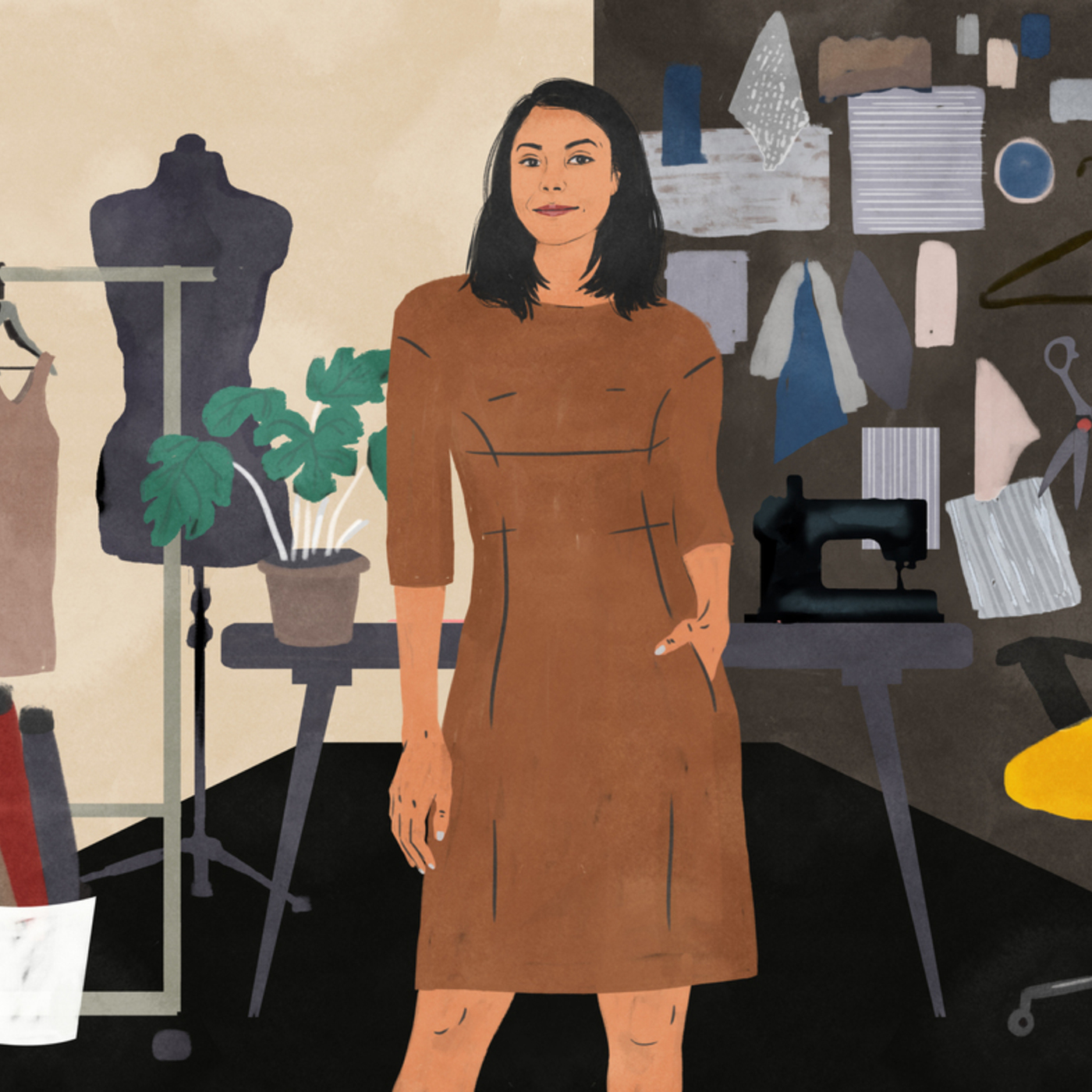
M.M.LaFleur: Sarah LaFleur (2020)
When she was working corporate jobs in New York City, Sarah LaFleur hated getting dressed in the morning; the choices in her closet felt overwhelming, many items didn't fit right or wore out too quickly. So in 2011 she launched a line of clothing for working women that would be simple, elegant, and well-tailored. She had no experience in fashion but partnered with a top-line designer, Miyako Nakamura, to create M.M.LaFleur. Today it's a multi-million dollar company with loyal customers from Capitol Hill to Silicon Valley.
See Privacy Policy at https://art19.com/privacy and California Privacy Notice at https://art19.com/privacy#do-not-sell-my-info.
01:08:0610/01/2022

Headspace: Andy Puddicombe and Rich Pierson (2019)
Andy Puddicombe is not your typical entrepreneur—in his early twenties, he gave away everything he owned to train as a Buddhist monk. But after ten years, he decided he wanted to bring the benefits of his meditation techniques to more people. While running a meditation clinic in London, Andy met Rich Pierson, who had burned out on his job at a high-powered London ad agency. Together, they founded Headspace in 2010. Over ten years later, Headspace's guided meditation app has users in 190 countries and an annual revenue of over $100 million.
See Privacy Policy at https://art19.com/privacy and California Privacy Notice at https://art19.com/privacy#do-not-sell-my-info.
01:08:0903/01/2022

Tate's Bake Shop: Kathleen King (2019)
Kathleen King was 11 years old when she started baking cookies to sell at her family's farm stand on Long Island. After college, she opened a small bake shop, and eventually started selling her cookies to gourmet grocery stores in Manhattan. But after twenty years of running a small business, she wanted more time for herself. She brought in two partners to grow sales, but the partnership was a disaster—and after bitter lawsuits, Kathleen was forced to start over from scratch. 18 years later, Tate's Bake Shop—the second cookie brand that she built out of the crumbs of the first—sold for $500 million.
See Privacy Policy at https://art19.com/privacy and California Privacy Notice at https://art19.com/privacy#do-not-sell-my-info.
56:4027/12/2021
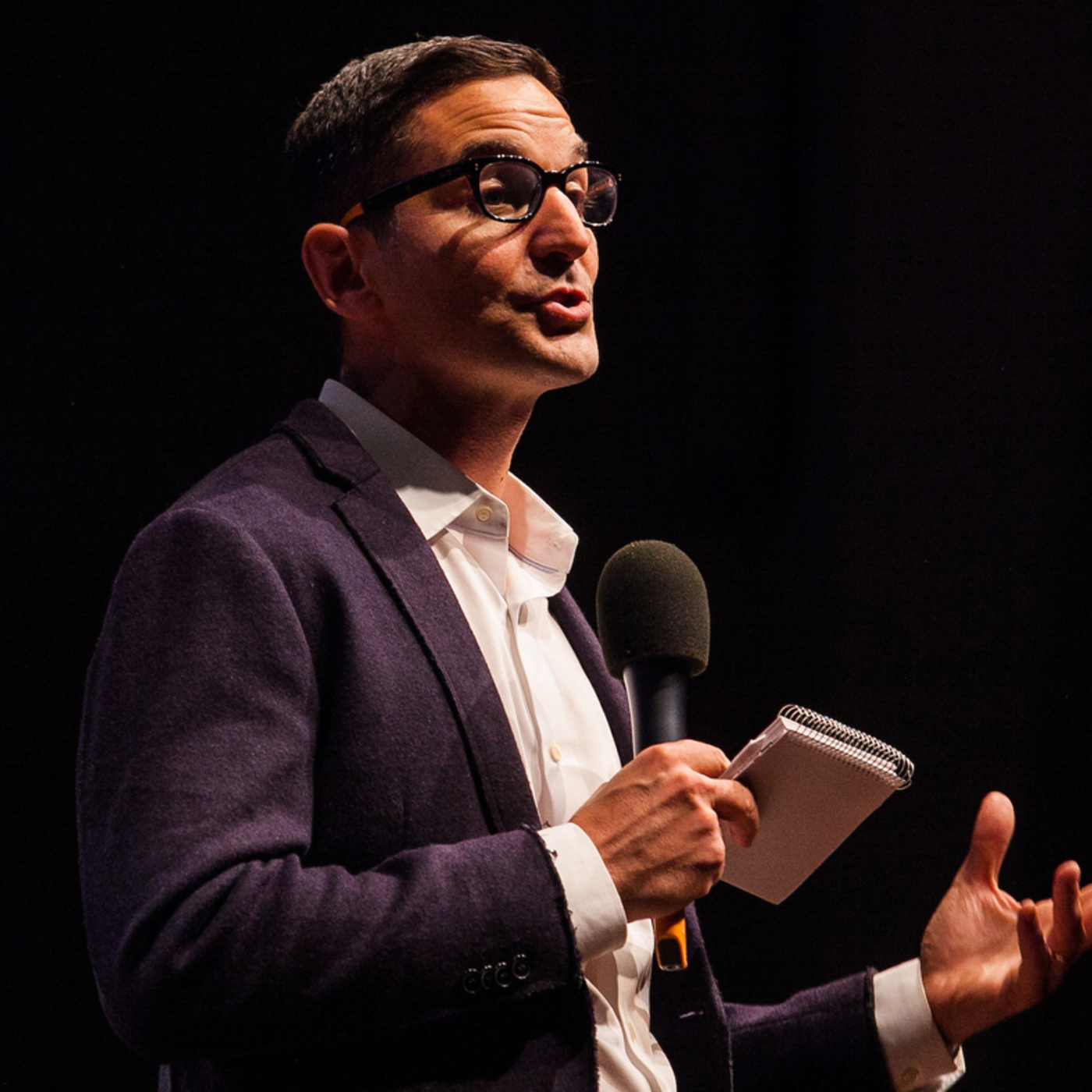
Bonus Episode! Ask Guy Anything: December 2021
What makes a good How I Built This story? Why do our episodes take weeks to produce? How does Guy prepare for an interview? As a bonus this week, Guy wanted to take some time and answer a bunch of your questions! If you have other burning questions about the show, our process, or even just about Guy, you can Ask Guy Anything by submitting a question at guyraz.com.See Privacy Policy at https://art19.com/privacy and California Privacy Notice at https://art19.com/privacy#do-not-sell-my-info.
14:1823/12/2021
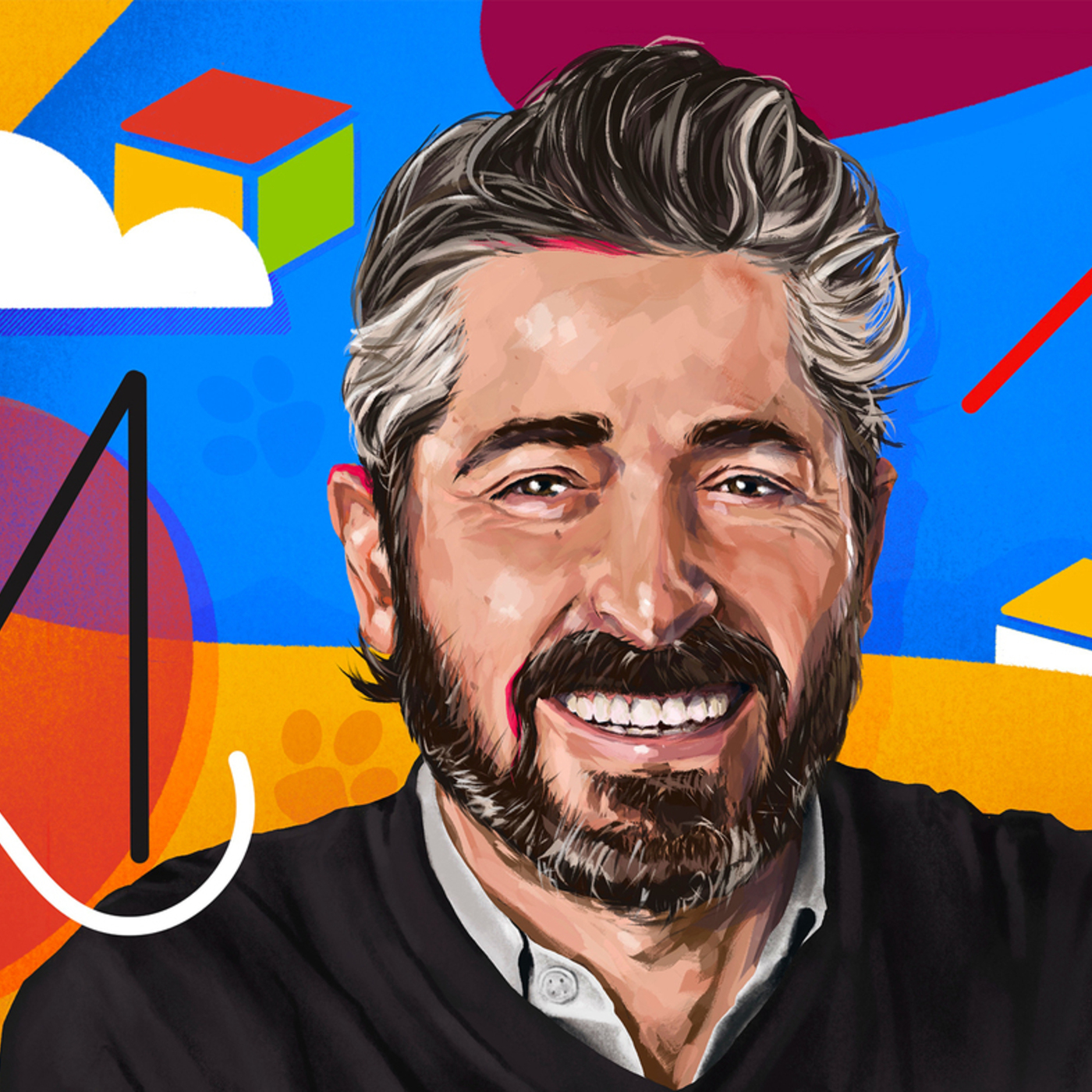
Spin Master/PAW Patrol: Ronnen Harary
Ronnen Harary built a 4 billion dollar toy company without relying on market research or focus groups. Instead, he believed wholeheartedly in intuition: the "ah-hah" moment that comes from thinking like a 7-year old. Over a 25-year period, he and his Spin Master partners launched innumerable hit toys and amusements, including Air Hogs, Bakugan, and the smash hit franchise PAW Patrol. Spin Master's journey began in the mid-1990s, when Ronnen and his friend Anton Rabie began selling the Earth Buddy, a chia-pet-like novelty gift made of pantyhose, sawdust, and grass seed. Today, it's a publicly traded company with a portfolio that includes TV shows, video games, and toys ranging from puzzles to plush.
See Privacy Policy at https://art19.com/privacy and California Privacy Notice at https://art19.com/privacy#do-not-sell-my-info.
01:06:2620/12/2021
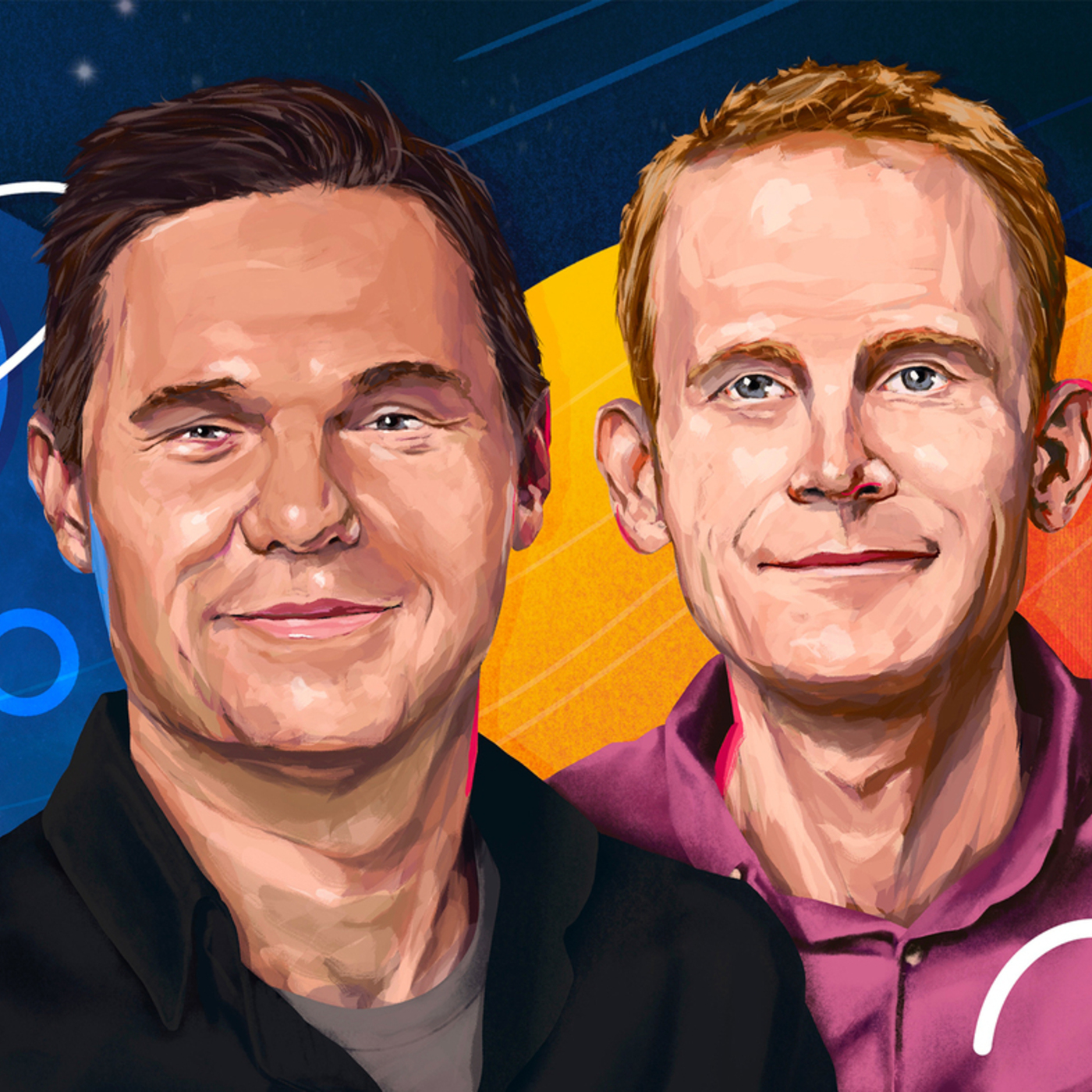
Planet: Will Marshall and Robbie Schingler
In 2010, rocket scientists Robbie Schingler and Will Marshall set an ambitious goal for themselves: to launch an aerospace mission with the speed and agility of a Silicon Valley startup. They set up shop in their garage, left their NASA jobs, and began pursuing their vision of building small, relatively inexpensive satellites to take daily images of the earth. Today, their company Planet has a fleet of roughly 200 satellites that capture millions of pictures daily, tracking everything from forest fires and oil spills to the health of coral reefs and crops. The company now has hundreds of clients around the world, and just went public on the NYSE.
See Privacy Policy at https://art19.com/privacy and California Privacy Notice at https://art19.com/privacy#do-not-sell-my-info.
01:00:2813/12/2021

Merge Records: Laura Ballance and Mac McCaughan
As college students in the late 1980s, Laura Ballance and Mac McCaughan launched two projects that came to define their trajectories as entrepreneurs: the "punky but poppy" band Chunk, and the scrappy record label, Merge. For decades, the partners juggled the demands of managing their own band while negotiating record deals and recording dates for other indie artists. But the two worlds also collided in happy ways: touring in their own band was a great way for Mac and Laura to discover new talent, and they also learned that musicians tend to trust a label more if its founders play in a band. Today, Chunk is still going strong as Superchunk, and Merge has morphed into one of the most influential labels in indie music, with bands like The Mountain Goats, Spoon, and Arcade Fire.
See Privacy Policy at https://art19.com/privacy and California Privacy Notice at https://art19.com/privacy#do-not-sell-my-info.
01:17:3006/12/2021

Live Episode! Tofurky: Seth Tibbott (2019)
Seth Tibbott may be the only founder in the world who grew his business while living in a barn, a teepee, and a treehouse. His off-the-grid lifestyle helped him save money as he started to sell tempeh, a protein made of fermented soybeans. Throughout the 1980s he barely scraped by, but things took a turn in 1995, when he discovered a stuffed tofu roast made in Portland, Oregon. Knowing vegetarians had few options at Thanksgiving, Seth named the roast Tofurky and started selling it at co-ops in the Pacific Northwest. Nearly 25 years later, Tofurky sells plant-based protein around the world, and has estimated sales of $40 million a year. This show was recorded live at Revolution Hall in Portland, Oregon.
See Privacy Policy at https://art19.com/privacy and California Privacy Notice at https://art19.com/privacy#do-not-sell-my-info.
48:3029/11/2021
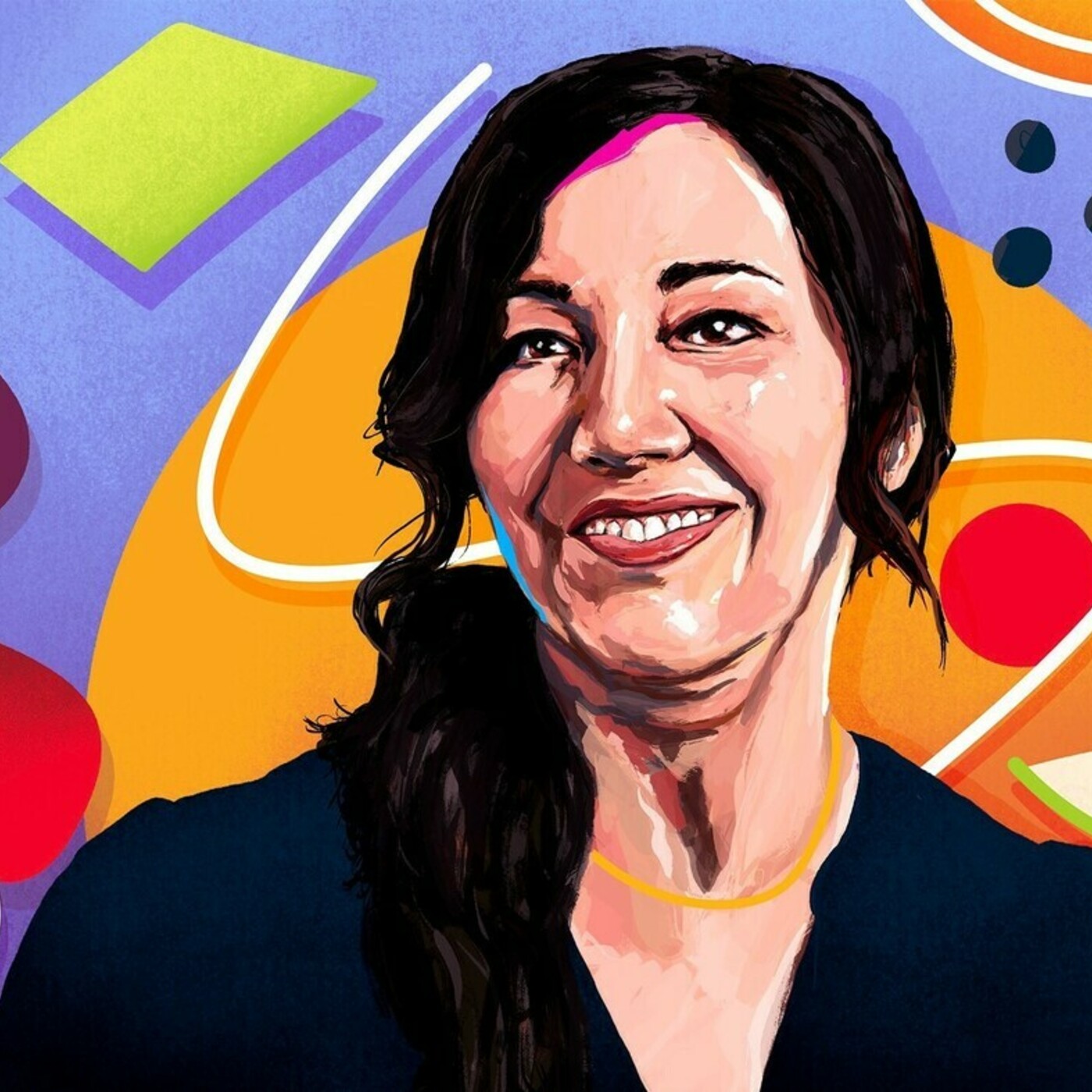
Stasher and Modern Twist: Kat Nouri
As a mother of three, Kat Nouri was dismayed at the amount of single-use plastic she was using to pack her kids' school lunches. She had already launched a successful brand called Modern Twist, which sold placemats and baby bibs made of silicone. So Kat wondered: why not use silicone to make durable food storage bags, which—instead of being used once, could be used thousands of times? In 2016 she launched Stasher, and was soon persuading retailers that an $11 reusable bag was better for the planet—and ultimately, more cost-effective for the big-box shopper. Kat successfully sold the brand to S.C. Johnson just a few years after launch, but her short tenure at Stasher's helm was marked by growing pains and gnawing moments of anxiety, including an unexpected scuffle with the sharks on Shark Tank.
See Privacy Policy at https://art19.com/privacy and California Privacy Notice at https://art19.com/privacy#do-not-sell-my-info.
01:08:0622/11/2021
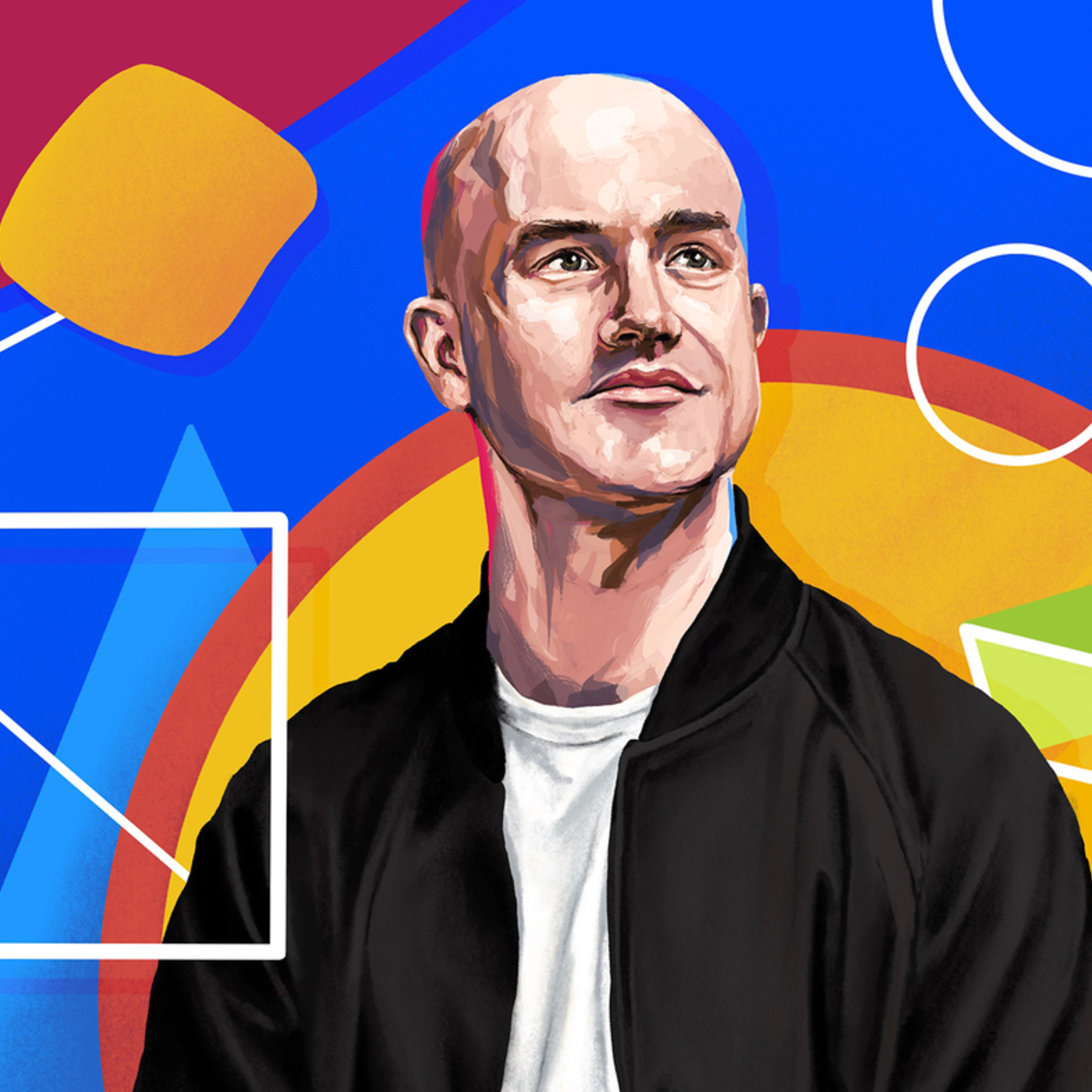
Coinbase: Brian Armstrong
Brian Armstrong wanted to be a tech entrepreneur since he was in high school, but his first serious venture—a tutoring website—never quite took off. Around 2010, while looking to get a job in Silicon Valley, he stumbled across an intriguing idea for a peer-to-peer digital currency called Bitcoin, which quickly turned into his obsession. Brian's initial prototype for a hosted Bitcoin wallet got him accepted into the prestigious Y Combinator program, and he launched Coinbase soon thereafter. Many experts warned that cryptocurrency was no more reliable than Monopoly money, but the startup prevailed, surviving wild swings in the crypto market and steadily building a user base. Today, Coinbase is one of the largest cryptocurrency exchanges in the world, with 7.4 million monthly users, 2,700 employees and over 80 cryptocurrencies traded on its platform.
See Privacy Policy at https://art19.com/privacy and California Privacy Notice at https://art19.com/privacy#do-not-sell-my-info.
01:23:1415/11/2021

Back to the Roots: Nikhil Arora and Alejandro Velez
In 2009, Berkeley seniors Nikhil Arora and Alejandro Velez started to geek out over something they'd heard in a lecture: you can grow a healthy crop of mushrooms on used coffee grounds. Intrigued by the business potential, the pair set aside jobs in finance and consulting and became urban farmers: salvaging leaky bags of coffee grounds, planting mushroom spawn in an Oakland warehouse, and selling their crop to local grocers. Over time, the partners realized they could help others grow food for themselves, so they stopped farming fungus and took the leap into selling tabletop grow kits, seeds, and potting soil. Since launch, Back to the Roots has become the fastest-growing organic gardening brand in the U.S., with its products sold in 10,000 stores across the country.
See Privacy Policy at https://art19.com/privacy and California Privacy Notice at https://art19.com/privacy#do-not-sell-my-info.
01:19:2808/11/2021





